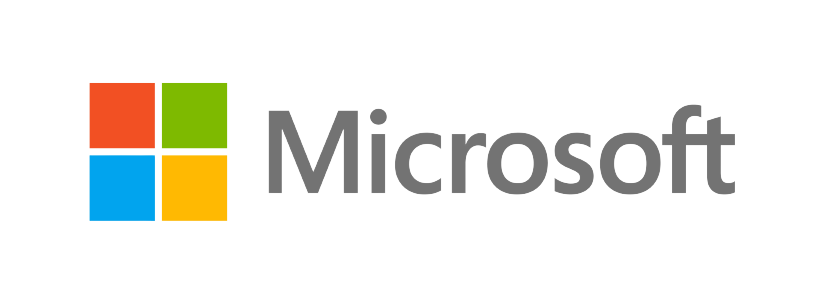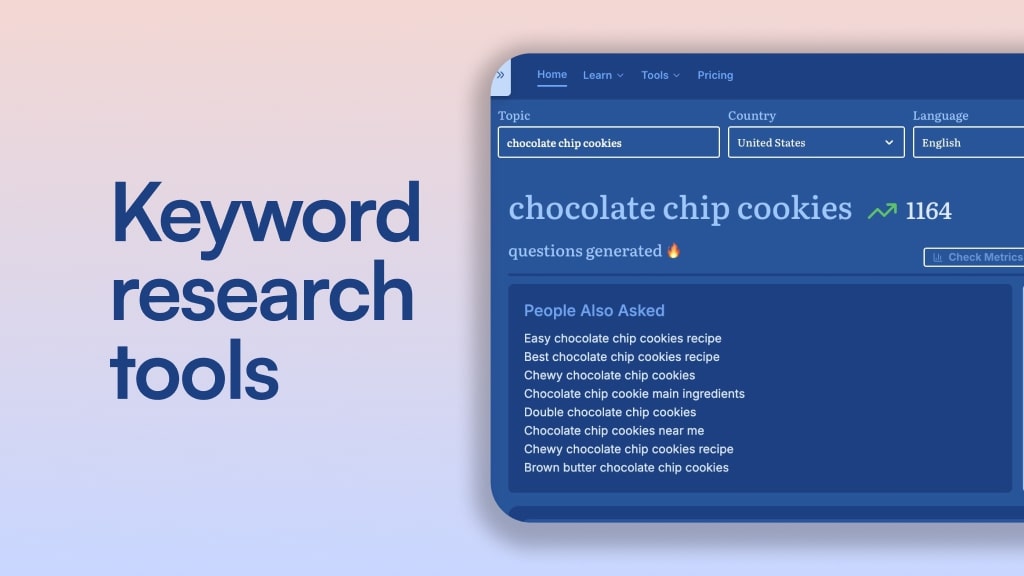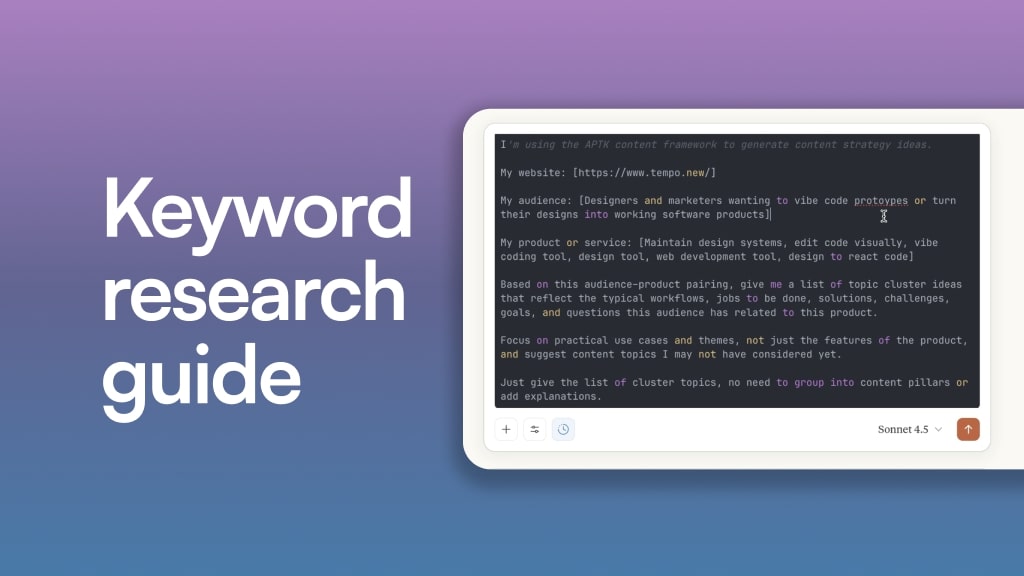In my 10 years of doing SEO, I’ve used every keyword research tool imaginable.
In this post, I’m going to share the ones I keep coming back to. These tools have helped me grow this blog to over well over 100K monthly visitors and generate more than eight figures in revenue for my clients.
The thing I’ve learned is that, if you want to get traffic and actual conversions from search engines and LLMs, you need to focus on finding the right topics and keywords. Most people get this wrong and end up writing content that never actually brings in customers.
If your SEO strategy isn’t driving revenue, chances are you’re targeting keywords that don’t attract people who are ready to buy.
The way around this is to map out your customer journey and align it with what people are searching for at every stage. When you do this well, your SEO turns into both a traffic and revenue engine.
So in this article, I’ll walk you through my favorite keyword research tools, how I use them, and what to keep in mind when building your SEO strategy.
These are the same tools and methods I used while leading SEO at Webflow (a $4.2B company), and the same ones I still rely on today for client work and my own websites.
Okay, no more rambling. Let’s get straight to it.
What is the best keyword research technique in SEO?
The best keyword research technique is to simply go into Google and start typing in a keyword that you want to rank for and see what Google Autocomplete shows. From there you want to analyze the links that show up and see if there's any mismatch in search intent or any gaps.
This is the core way of analyzing keywords in Google that I recommend any beginner start with. You can even combine this with:
- Google Keyword Planner for search volume data
- Google Trends for seasonality and keyword suggestions
- Keywords Everywhere Chrome Extension for search volume metrics inside Google’s SERPs
Keyword research is something that is extremely important. It's the 20% thing you do that drives 80% of your results for your website. If you target the wrong keywords, or you go after vanity metrics like traffic, you're going to have a hard time actually generating real revenue from your keywords.
I know this because I used to do this back in 2016 when I first got into SEO. But in 2019, I started to shift my strategy when I was leading SEO projects at a company called Webflow (no worth over $4.2B). I started to think about keywords in a buyer's journey perspective.
Instead of just targeting keywords that I thought were high traffic and low competition, I started to target the right keywords that people were searching for at different stages in the funnel:
- Top of funnel (awareness stage)
- Middle of funnel (consideration stage)
- Bottom of funnel (decision stage)
And through this I created a framework that I now call the APTK Framework that can be used to grow any SaaS or media website.
But that's just the keyword content strategy. The part I love is finding related keywords that your competitors aren't targeting. And I do that by using the tools I mentioned above like Google Autocomplete, Google Keyword Planner, and Google Trends. I actually made an entire YouTube video about how to do keyword research you can watch here:
Follow these steps and I promise that you will see growth in organic traffic and conversions from SEO (assuming you don't miss any steps and you do them correctly).
What is the most accurate keyword research tool?
Different keyword research tools vary in accuracy. When it comes to finding just keyword ideas that people are searching for in real time, using Google Autocomplete is the most accurate keyword research tool.
But for example, when it comes to analyzing a keyword once you have already found it and you want to compare it against competitors that may be ranking for it, using a tool like Ahrefs or Semrush would be the most accurate.
You can also use Google Keyword Planner, but that tool, while it's free and I recommend using it anyways, gives you a very broad range of search volume so it's a little bit hard to make SEO traffic forecasts.
Are there free keyword research tools?
Yes, of course! My favorite best free keyword research tools would have to be Google Keyword Planner, Google Trends, AlsoAsked, and Bing Webmaster Tools. All of these tools serve different purposes but they are free to use and I recommend any beginner start with these.
If you want to learn more about how I actually use these tools myself, I talk more about them below. So now let's get into my full list of the best keyword research tools right now.
20 best keyword research tools in 2026 (free + paid)
Here are the best keyword research tools:
- Google Keyword Planner
- Google Autocomplete
- Ahrefs
- KeySearch
- AlsoAsked
- Answer Socrates
- Semrush
- LowFruits
- Surfer
- Google Search Console
- Clicks.so
- Ubersuggest
- Clearscope
- Bing Webmaster Tools
- Keywords Everywhere
- ProductRank.ai
- Google Trends
- AnswerThePublic
- WordStream
- ChatGPT (warning)
Alright, let’s take a look at each of these, and how I use them.
1. Google Keyword Planner
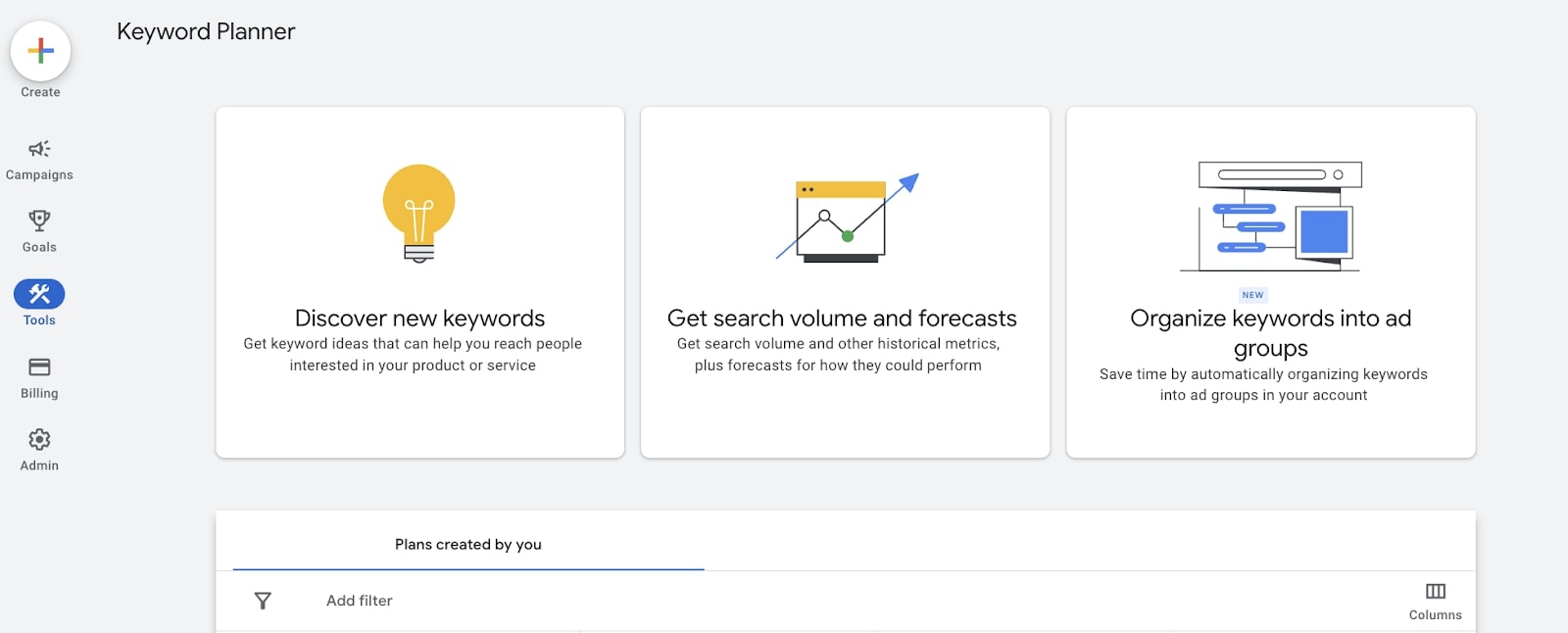
- Best for: Validating keyword search volume and competition
- How I use it: Confirming if keywords are worth targeting
- Pricing: Free
The first on my list is my favorite keyword research tool. Google Keyword Planner is a keyword analysis tool that is completely free to use. And it's actually a feature within Google Ads. It's primarily a keyword tool used for performance marketers that run ads through Google, but it's a great resource for anyone doing SEO.
You can access the tool by going into your Google Ads account (if you don't have one, just make one, it's free) and then you head over to Tools in the left side panel. From there, in the Planning section, you'll see Keyword Planner.
Once you open Keyword Planner, you'll see the options to:
- Discover new keywords
- Get search volume and forecast
- Organize keywords into ad groups
The very last option doesn't really make sense for us as SEO marketers, but the two features that are key here are discovering new keywords and getting search volume and forecast.
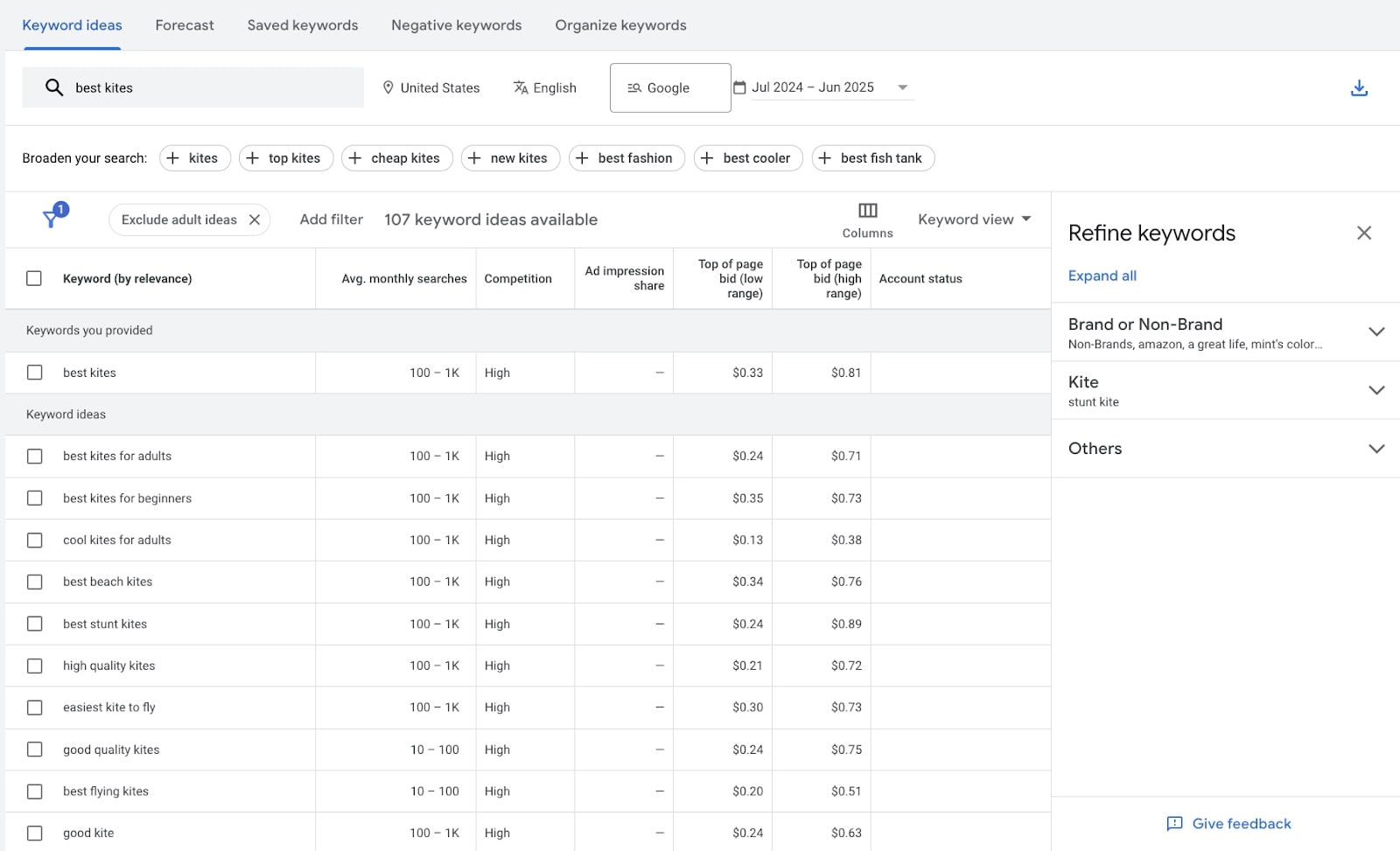
I actually only use the "get search volume and forecast" feature here, mainly because I discover new keywords through using the tool coming up right after this to help me find good keywords. Then I use Google Keyword Planner to confirm if it's a good keyword to go after.
It also helps me take a bunch of keywords that might be similar to each other and add them into the get search volume so I can see which keyword I should prioritize that has the most search volume as well as the competition level.
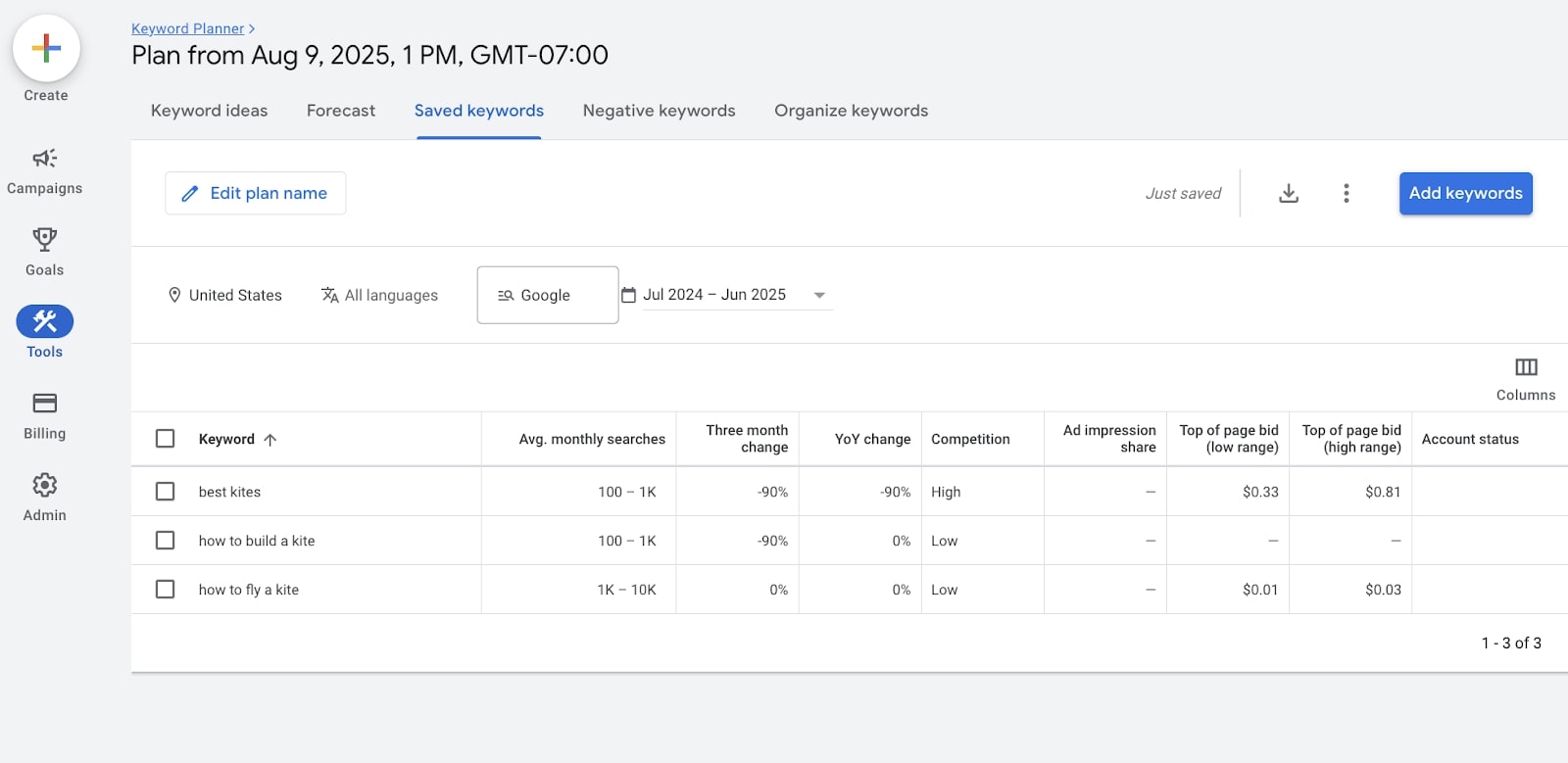
You can also see the CPC ranges, so this means this is how much people are paying on average to bid on this keyword. Generally, the higher the bid, the more valuable the keyword is.
Google Keyword Planner pros and cons
I love Google Keyword Planner because it's completely free, but I don't want to be biased here, so I am going to include pros and cons.
Pros of using Google Keyword Planner:
- Completely free to use
- Uses data from Google so it's as accurate as it gets
- You can use it to discover long-tail keywords based off of a seed keyword
Cons of using Google Keyword Planner:
- You have to create a Google Ads account to use the platform
- Sometimes it can be a bit glitchy or it might take a long time for keyword ideas to load
- The search volume ranges are usually super broad so it's hard to get an exact estimate (this can be solved with some other tools on this list)
Is Google Keyword Planner good for SEO?
Google Keyword Planner is great for anyone just starting out in SEO. It helps you get familiar with the Google Ads product as well as help you understand how to analyze keyword data from search volume, cost per click, and competition levels.
I highly recommend every single SEO from complete beginner to advanced use this. And funny enough, as I have gotten better at SEO throughout the decade that I have been doing it, I find myself using Google Keyword Planner over some other premium keyword research tools.
Is the Google Keyword tool free?
Google's Keyword Planner is completely free to use and it's located inside of the Google Ads product. It's probably the best all-around keyword research tool that you can use that is completely free.
If you have never used it, I highly recommend that you go and play around with it after you finish reading this article.
2. Google Autocomplete
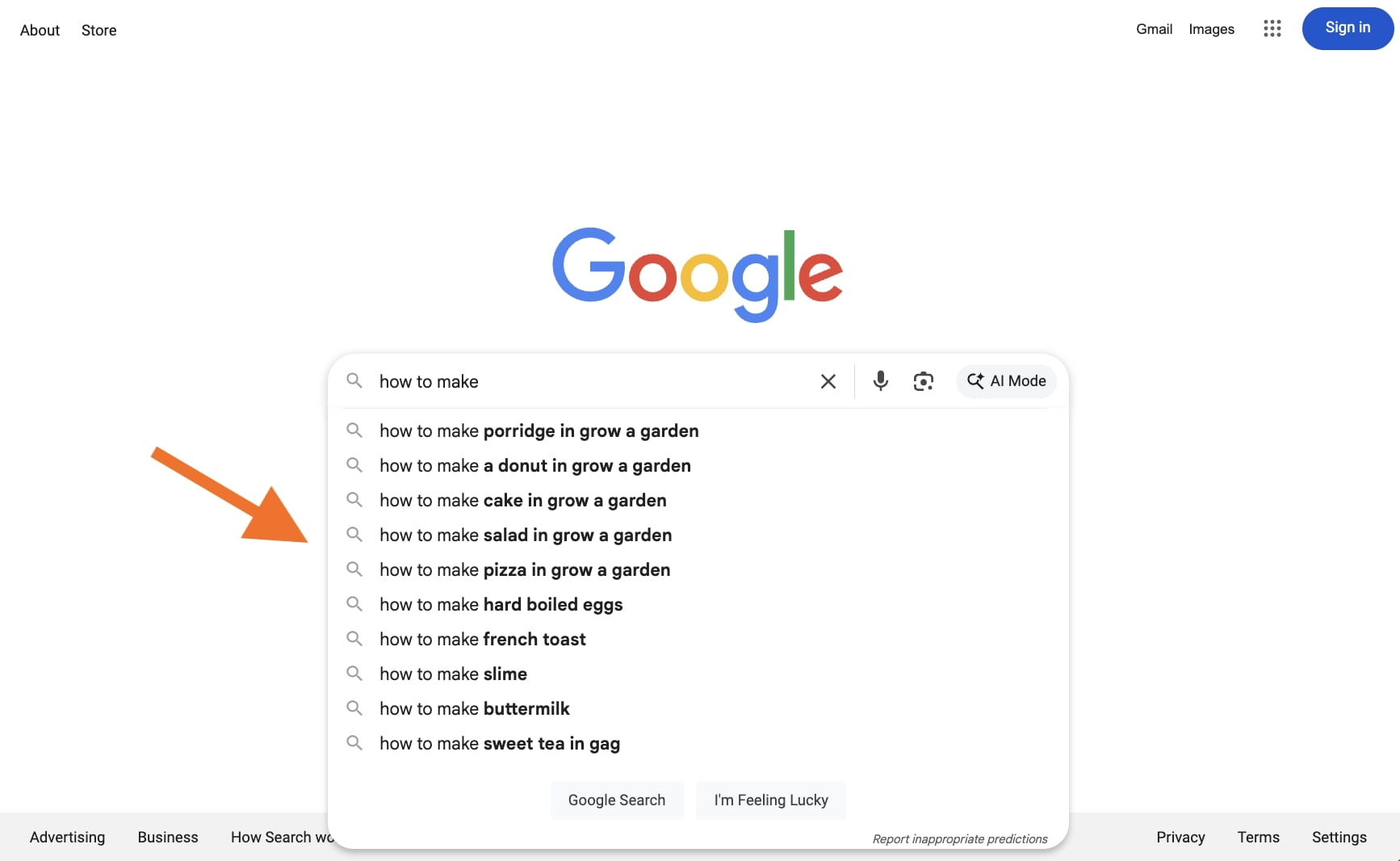
- Best for: Finding real-time, trending keywords that tools miss
- How I use it: Type topics slowly in incognito mode and note suggestions
- Pricing: Free
While some might not consider this a tool, it's the first thing I start with every time I do keyword research. Google Autocomplete means simply going to google.com (ideally in an incognito window) and slowly typing out a topic that you want to write about.
As you type, you want to look at the autocomplete options. These are great keyword ideas because they are things that people are searching for in real time. And often, some paid SEO keyword research tools don't even show these relevant keywords because they might be brand new.
This strategy is how I have been able to drive some of my highest performing blog posts. And I combine this with Google Keyword Planner to find hidden gem keywords (mentioned earlier in this post).
Anyways, this tool is probably the best free keyword research tool because it's actually shows what people are searching for right now. These are the best keywords in my opinion.
What is autocomplete in Google Search?
Autocomplete in Google Search is simply typing in a topic and seeing what results show up to autocomplete the keyword. These are things that people are searching for in real time, so they often can change based on search trends and what's currently happening in whatever topic that you're writing about.
Google Autocomplete pros and cons
Here are some of the pros and cons of using Google Autocomplete for keyword research.
Pros:
- Search queries people are searching for in real time
- Some of these keywords have high search volume but will show little to no search volume in paid keyword research tools
- How I found keywords that have driven me a lot of traffic and conversions
Cons:
- It doesn't give you search volume data (so you can use another tool we'll go over in this list to make that happen)
That's it, there really are no cons to using Google Autocomplete. It's free, always up to date, and shows you exactly what people are searching for right now.
3. Ahrefs
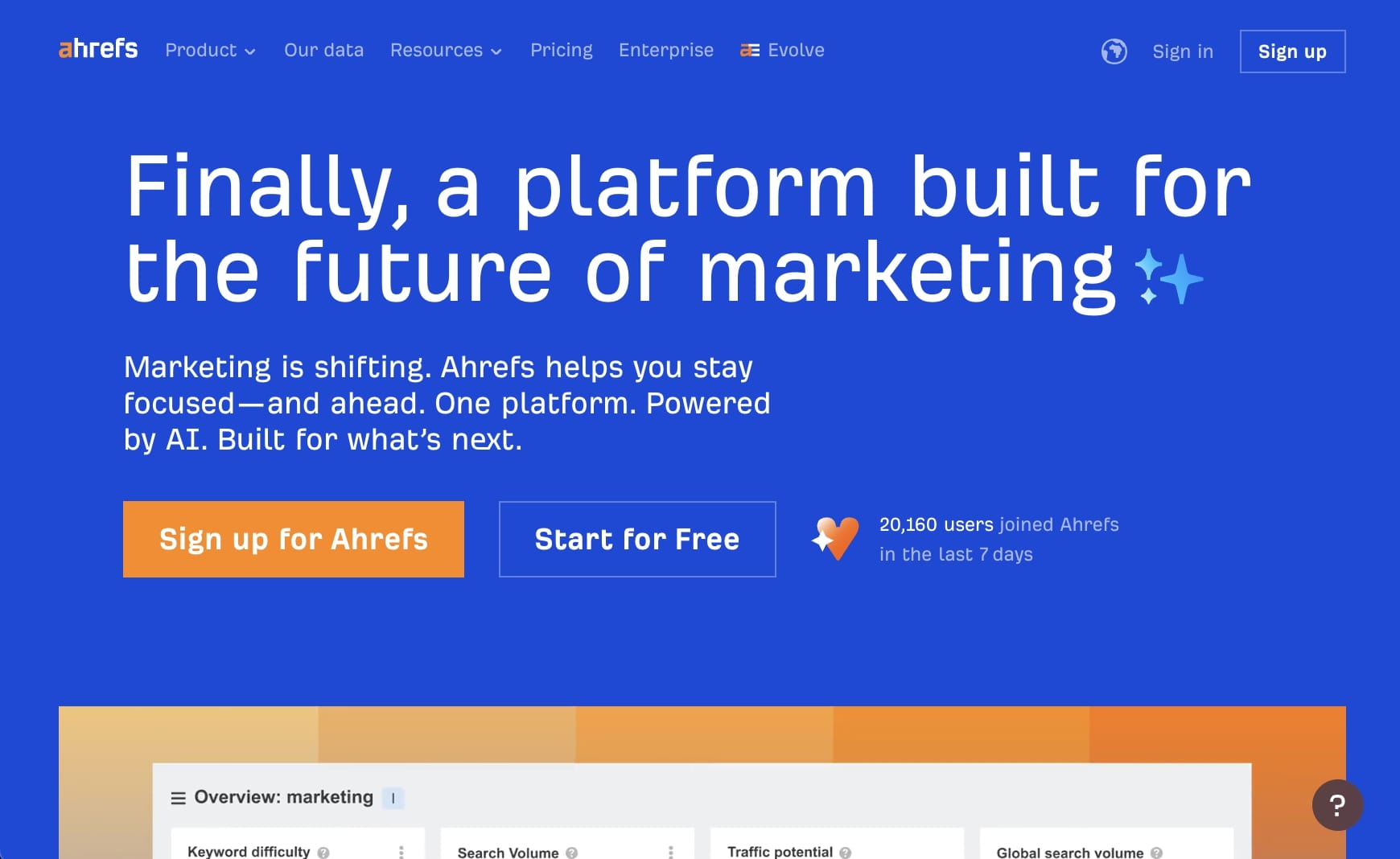
- Best for: Competitor keyword analysis and SERP research
- How I use it: Filter keywords by difficulty and specific search terms
- Pricing: $129 per month
Ahrefs is a popular SEO keyword research tool that is used by thousands of SEO professionals and companies. It's a tool that I have used for almost a decade now. Initially it was the main way I did keyword research in the early days of my blog and for my SaaS clients.
The main way I use this is I go into the Keyword Explorer feature and I type in a topic or seed keyword idea. From there I click on the Matching Terms tab and I can see a huge list of keyword ideas.
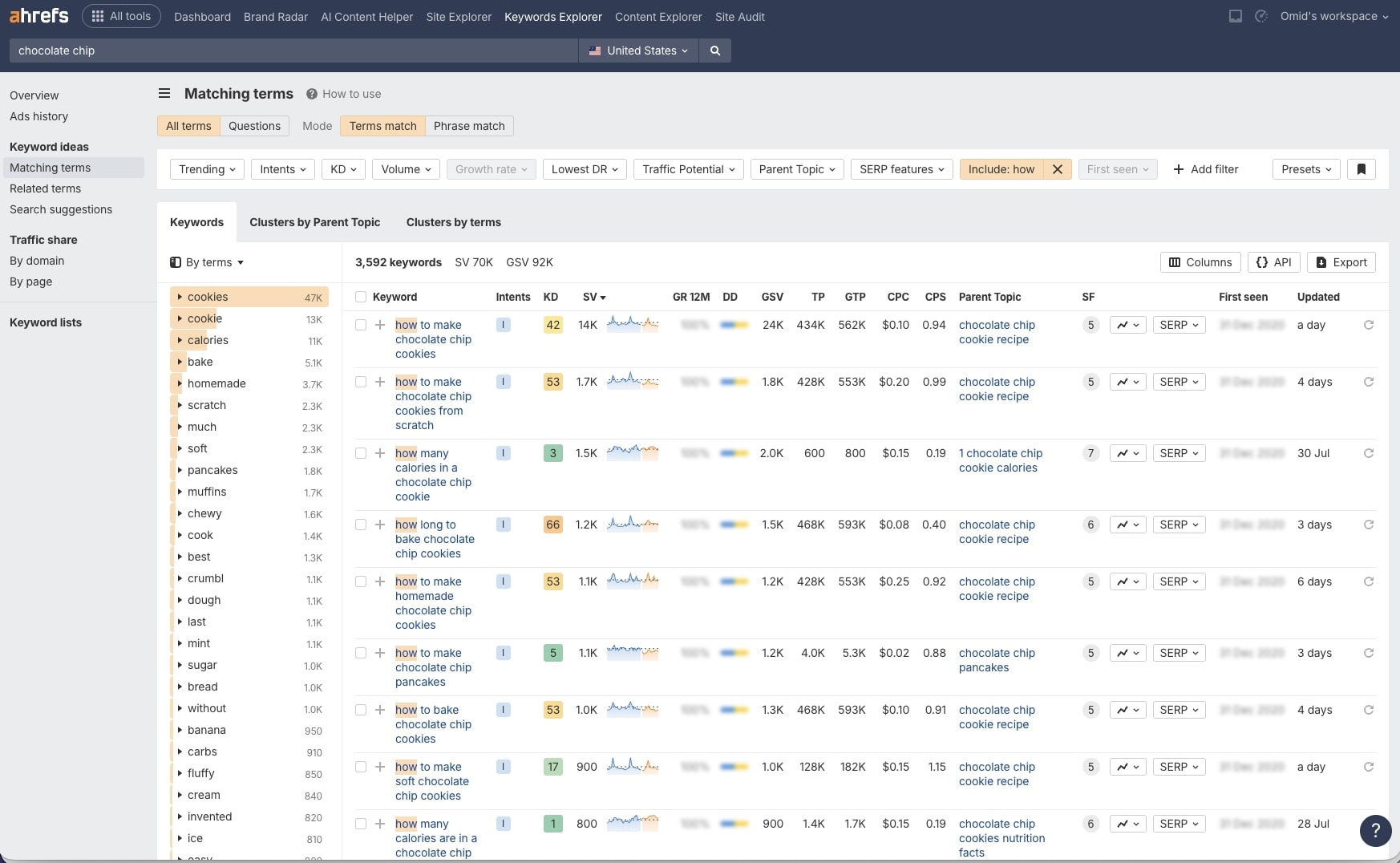
But then I take it a step further and I manipulate this data by either adding a filter with specific words, like "best" or "how to". I also sometimes mess around with the KD (keyword difficulty) score to find lower competition keywords. You can actually check out this blog post I wrote on how I do all of this filtering stuff.
Ahrefs pros and cons
Here are some of the pros and cons of Ahrefs:
Pros:
- It's one of the most advanced keyword research tools on the market
- It's great for inputting a competitor's website and doing keyword research by figuring out what keywords they're ranking for and reverse engineering their strategy
- It's great at analyzing the SERP (search engine results page) of a given keyword
Cons:
- It has a pretty hefty price tag and it is not a cheap entry-level keyword research tool
- Sometimes the keyword data can be old or outdated and you have to pay extra credits to update the information
- Most marketers are using a tool like Ahrefs so chances are you'll both be looking at the same keywords (hence why I always start with Google Autocomplete instead)
Ahrefs pricing
Ahrefs is not the cheapest tool on the market. They used to have a Starter $29 per month plan, but I don’t see it anymore.
However, these are their current main pricing tiers:
- Lite: $129/month (includes 1 user, 500 credits/month, 6 months of history)
- Standard: $249/month (includes 1 user, unlimited credits, 2 years of history)
- Advanced: $449/month (includes 3 users, unlimited credits, 5 years of history)
- Enterprise: $14,99/year (includes API access, SSO, and custom limits)
You can check out more information about what each plan offers on their pricing page.
Ahrefs reviews and ratings
Here's what customers of Ahrefs rate the platform on third-party review sites:
- G2: 4.5/5 star rating (from +589 reviews)
- Capterra: 4.7/5 star rating (from +579 reviews)
4. KeySearch
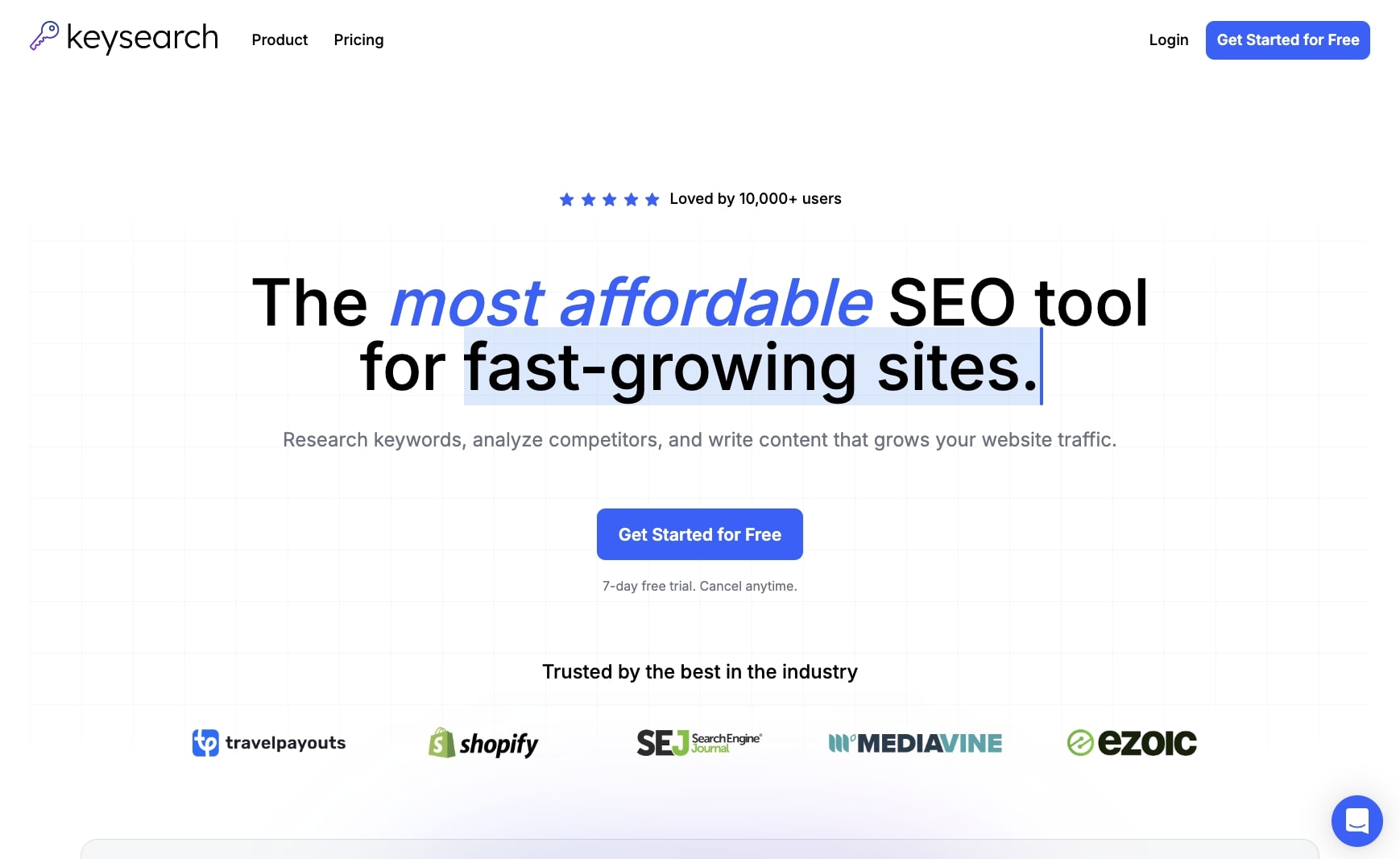
- Best for: Budget-friendly keyword research with autocomplete
- How I use it: Brainstorm feature for unbiased autocomplete suggestions
- Pricing: Starts at $24/month
Just like Ahrefs, KeySearch is another keyword research tool that I have been paying for for many years. It's like a budget-friendly version of Ahrefs, albeit doesn't have the best user experience but it does get the job done.
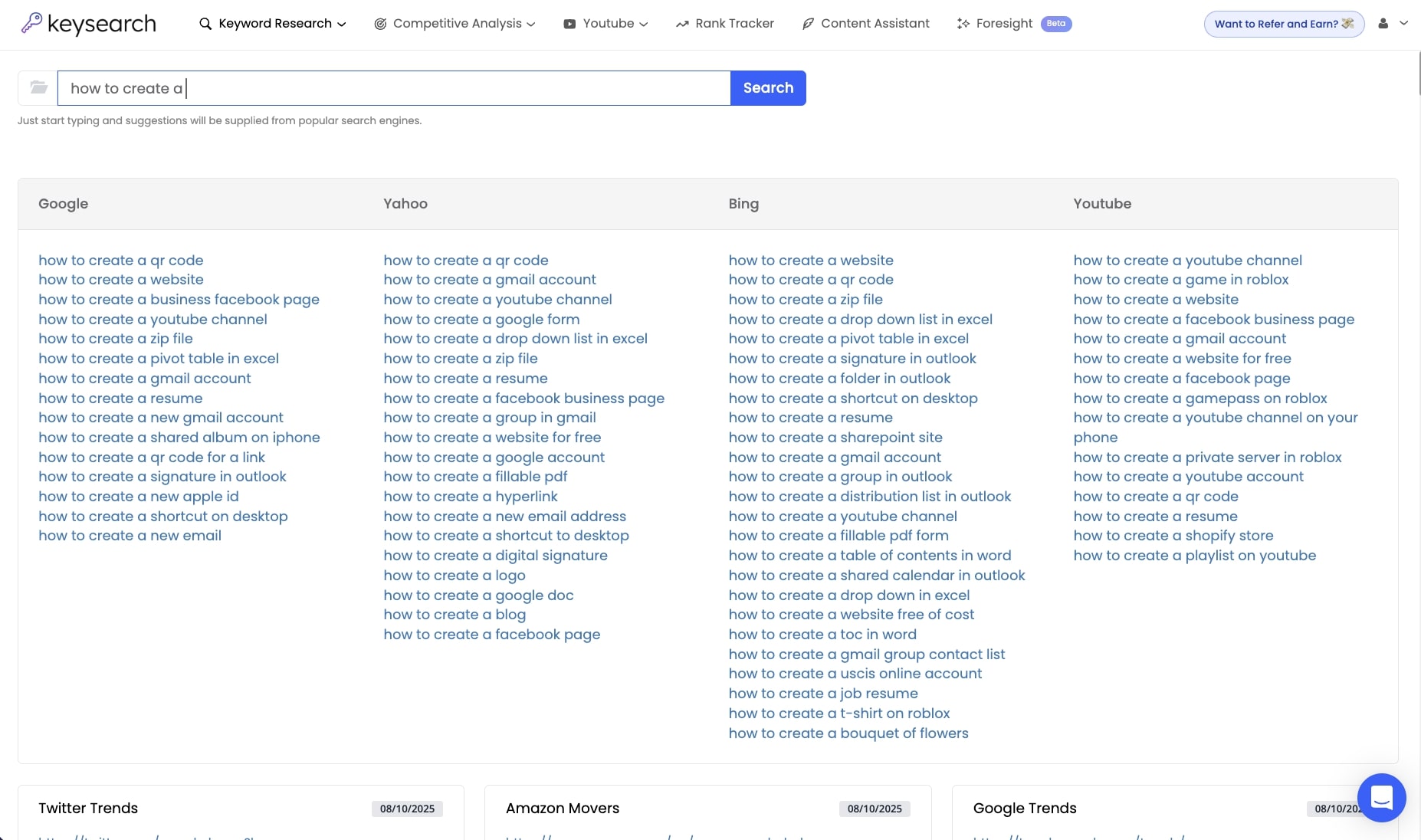
One thing I love about KeySearch is the Brainstorm feature where it has Google Autocomplete built in. But it also has autocomplete for YouTube, Bing, and other search engines as well. And I like using KeySearch a lot of times for the autocomplete feature because even when you use Google in an incognito window, it still sometimes tailors your autocomplete results based off your previous searches. But KeySearch doesn't.
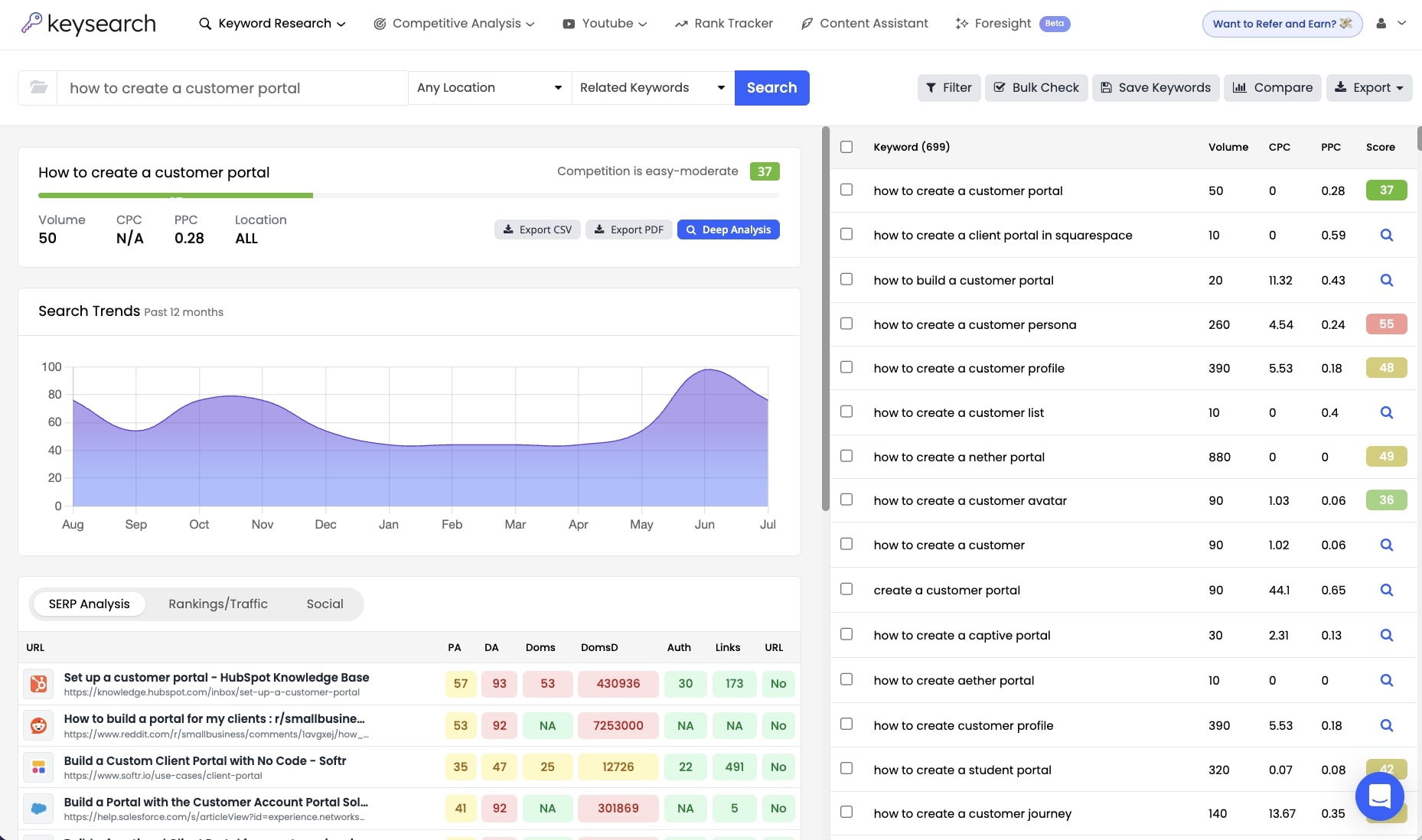
You can also type in keywords and see things like the search volume, the cost per click, and also what websites are ranking for that term, along with the websites' Domain Authority and Page Authority. They use Moz's API to display all data.
KeySearch pros and cons
Here are the pros and cons of using KeySearch
Pros:
- Super affordable and easy to use
- Great for any beginner just starting out (it was the first paid tool that I actually paid for, not the company I was working at)
- Has way more features outside of keyword research like an AI content editor, competitor analysis, and even keyword rank tracker
Cons:
- The user interface is a bit outdated
- Sometimes it takes a while for the data to load
- It uses Moz API to surface search volume, which seems to not be as accurate as it used to be
KeySearch pricing
Here are KeySearch's pricing plans:
- Starter: $24/month or $240/year (200 searches/day, 80 rank tracking keywords, 5K AI credits)
- Pro: $48/month or $480/year (500 searches/day, 200 rank tracking keywords, 15K AI credits, includes Foresight)
Both plans include all core features like keyword research, SERP analysis, competitor analysis, and more. There's also a 7-day free trial available.
You can check out more information about KeySearch's pricing.
KeySearch reviews and ratings
Here's what customers of KeySearch rate the platform on third-party review sites:
- Trustpilot: 3.8/5 star rating (from +26 reviews)
5. AlsoAsked
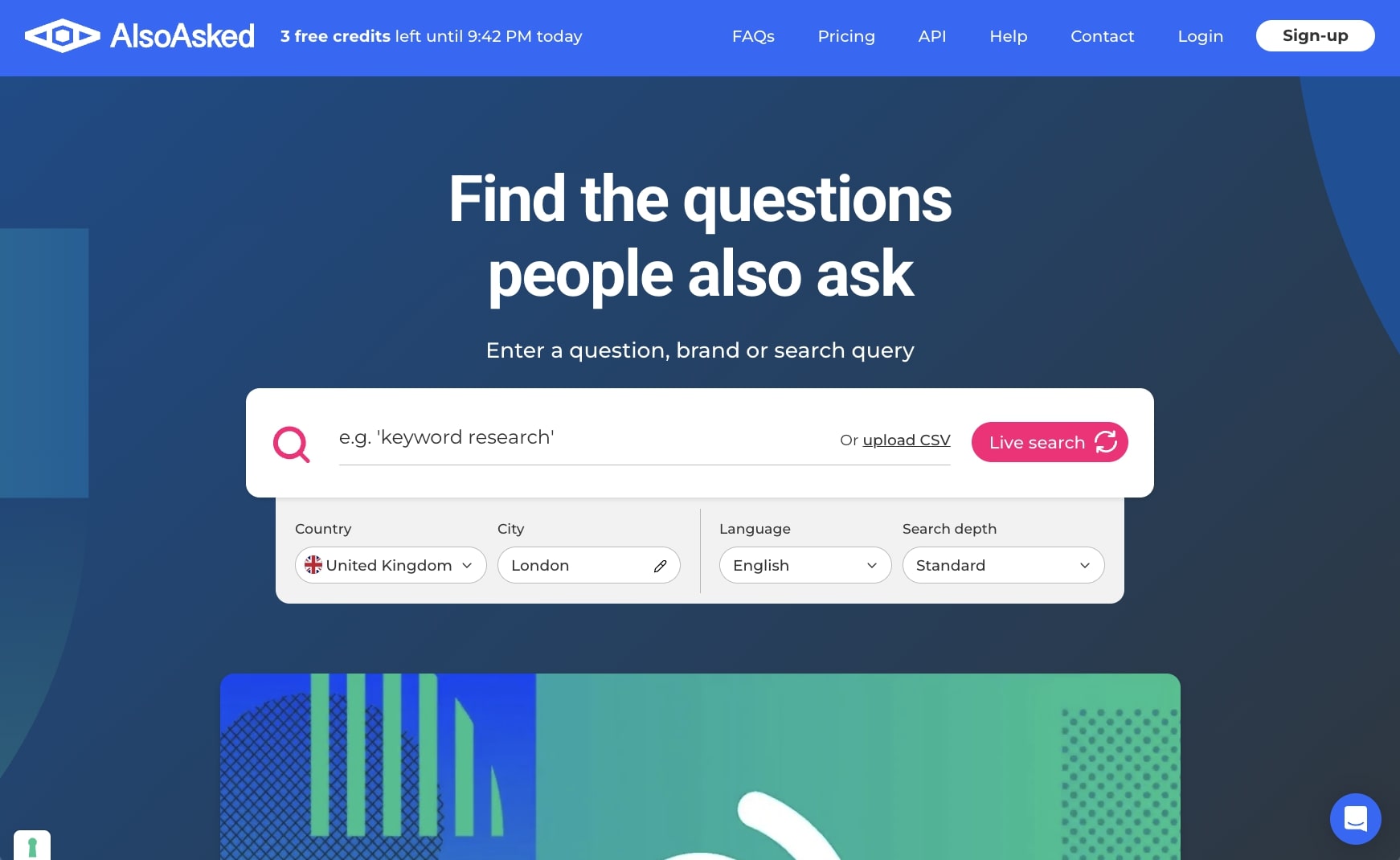
- Best for: Finding question-based subheadings for blog posts
- How I use it: Generate H2/H3 ideas from related questions
- Pricing: 3 free searches, then starts at $15/month
AlsoAsked is a keyword research tool that I have been using a lot recently. It's quickly become my favorite tool for helping me figure out what headings I should include in a blog post.
So while I don't necessarily use it to find an initial keyword like I do with some other keyword research tools, I included it because it is such a key component to actually writing blog posts that rank in Google.
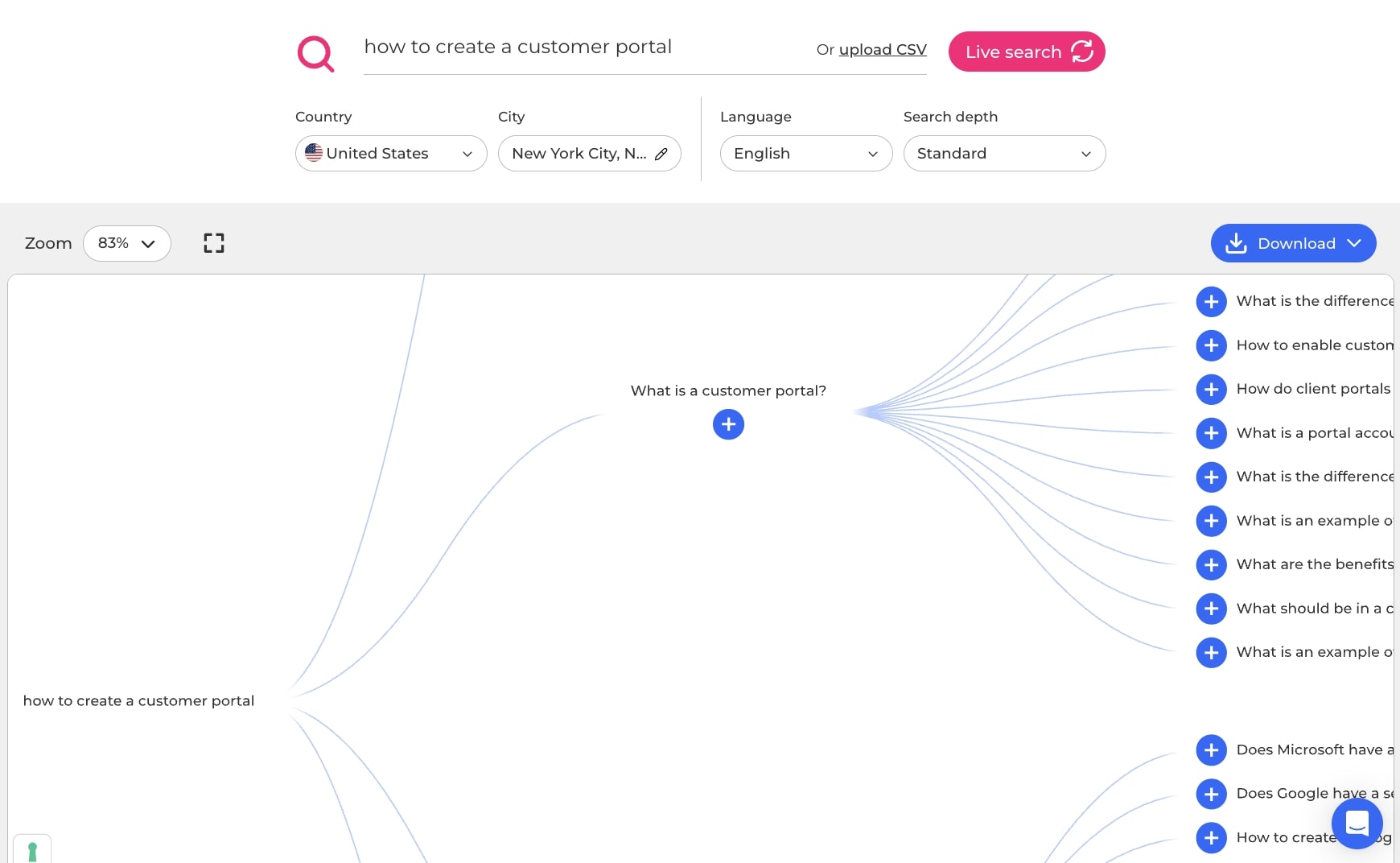
What I mean by this is that once you have a keyword, you can paste it into AlsoAsked and the tool gives you a full mind map of questions that people are asking related to your target keyword. And these questions are perfect for adding as H2 or H3 subheadings in your blog posts.
The tool is free to use for three searches, but after that it's going to cost you money.
AlsoAsked pricing
Here are AlsoAsked's pricing plans:
- Basic: $15 per month, with 100 searches per month
- Lite: $29 per month, with 300 searches per month
- Pro: $59 per month, with 1,000 searches per month
The tool is great for content optimization since it shows you exactly what questions people are asking about your topic. If you're writing multiple blog posts per month, the Lite plan usually provides enough searches.
If you want to see all the specific features of each plan, you can check out their pricing page here.
AlsoAsked reviews and ratings
Here's what customers of AlsoAsked rate the platform on third-party review sites:
- Product Hunt: 5/5 star rating (from +2 reviews)
6. Answer Socrates

- Best for: Finding question-based keywords with modifiers
- How I use it: Generate content ideas from what/how/why questions
- Pricing: 3 free search per day, then starts at $9/month
Answer Socrates is another keyword research tool very similar to AlsoAsked. You type in a keyword and it generates a report on all the related questions for your given keyword.
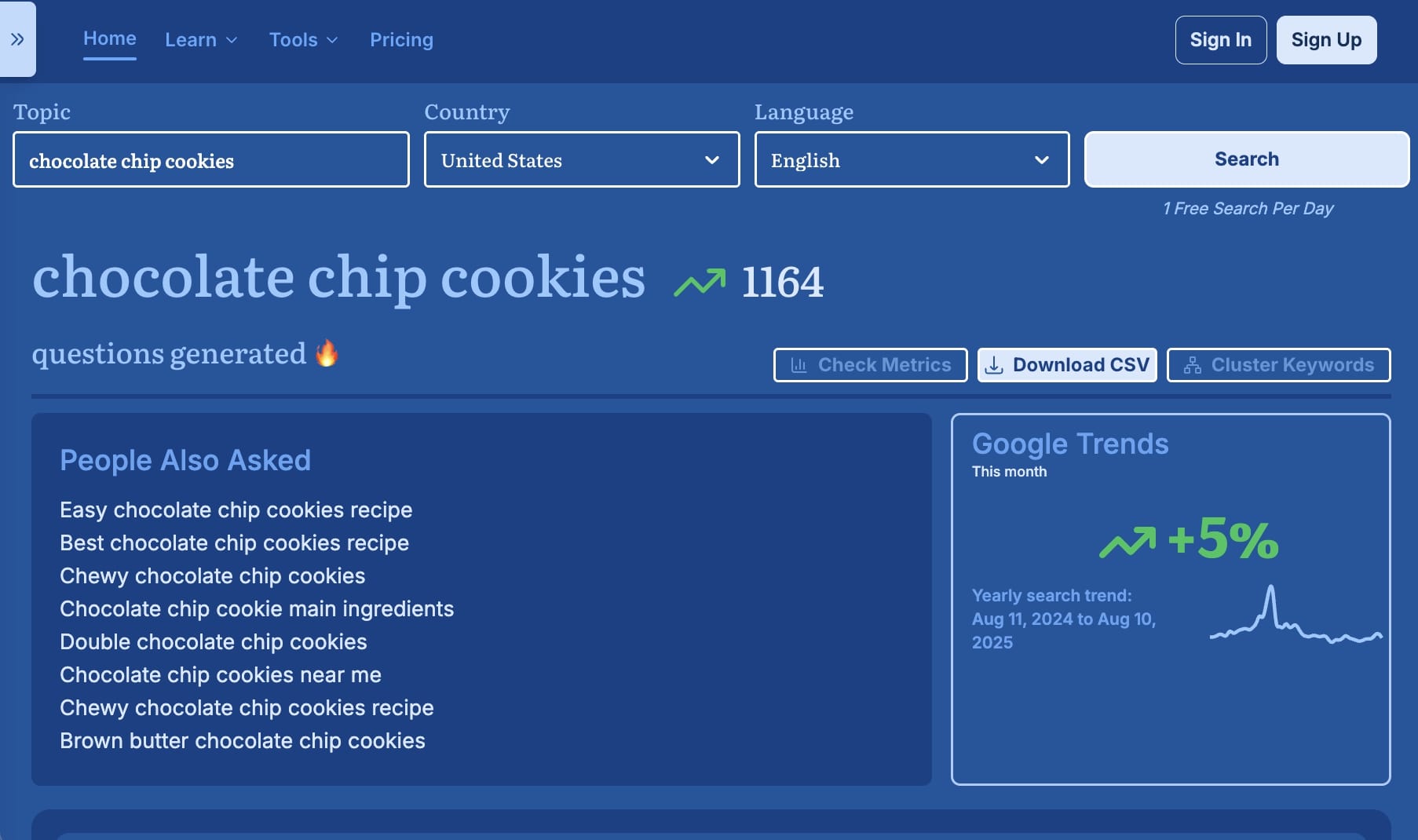
For example, when you type in a seed keyword, it gives you question ideas in the form of things that start with what, how, which, who, why, and will. It's sort of like adding these modifier words in an autocomplete fashion and spitting them out based off of your keyword topic.
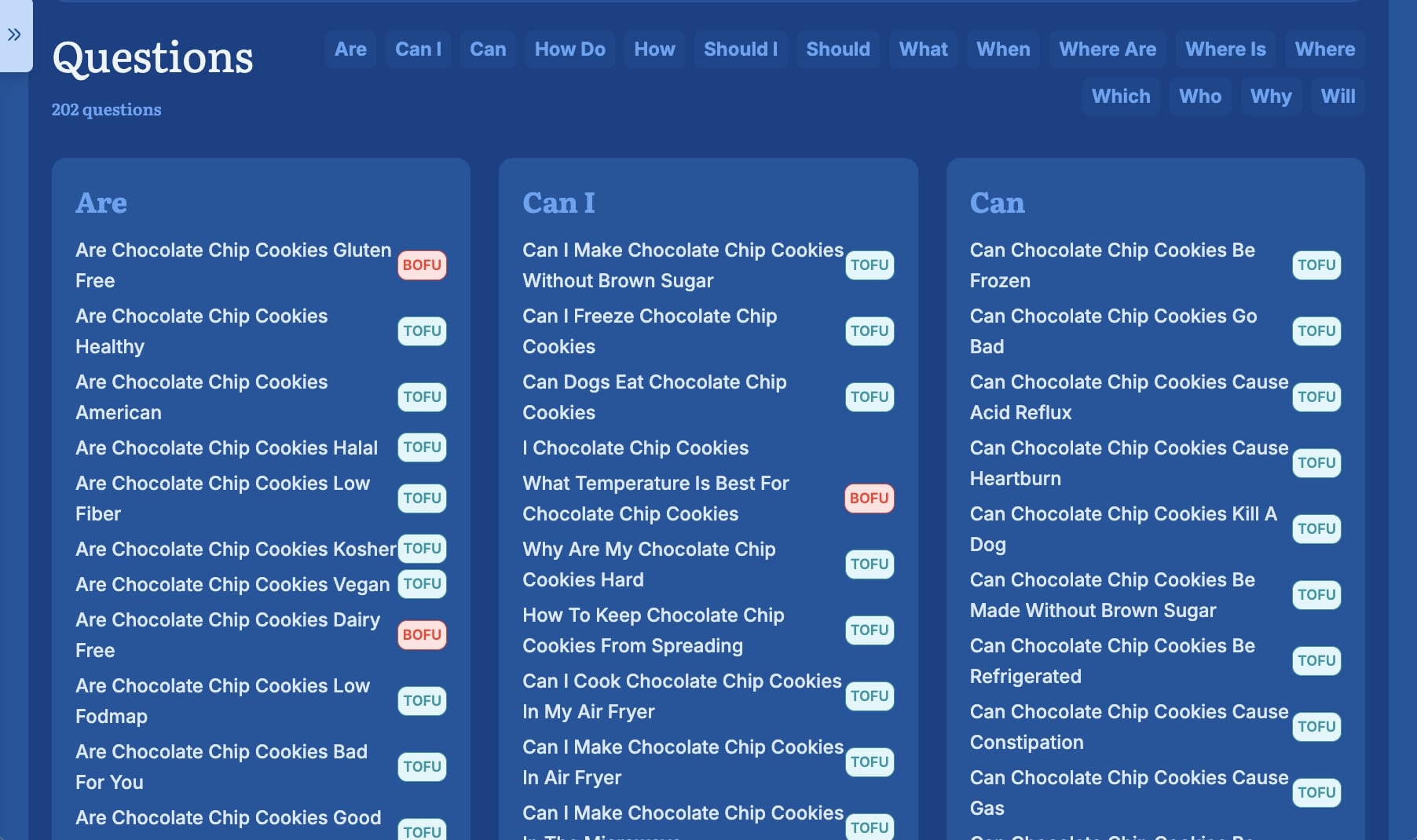
The tool only gives you one search per day for free. However, it is a pretty affordable tool if you need more searches.
Answer Socrates pricing
Here are Answer Socrates' pricing plans:
- Socrates Lite: $9 per month, with 100 keyword searches and 30 recursive searches per month
- Seneca: $29 per month, with 500 keyword searches and 100 recursive searches per month
- Aurelius: $49 per month, with unlimited keyword searches and 500 recursive searches per month
All plans include CSV downloads, SEO metrics (keyword volume, CPC, and competition data), cluster credits, and AI model tracking. At these price points, Answer Socrates is one of the most affordable question research tools on this list.
If you want to see all the specific features of each plan, you can check out their pricing page here.
Answer Socrates reviews and ratings
Here's what customers of Answer Socrates rate the platform on third-party review sites:
- Product Hunt: 5/5 star rating (from +1 review)
7. Semrush
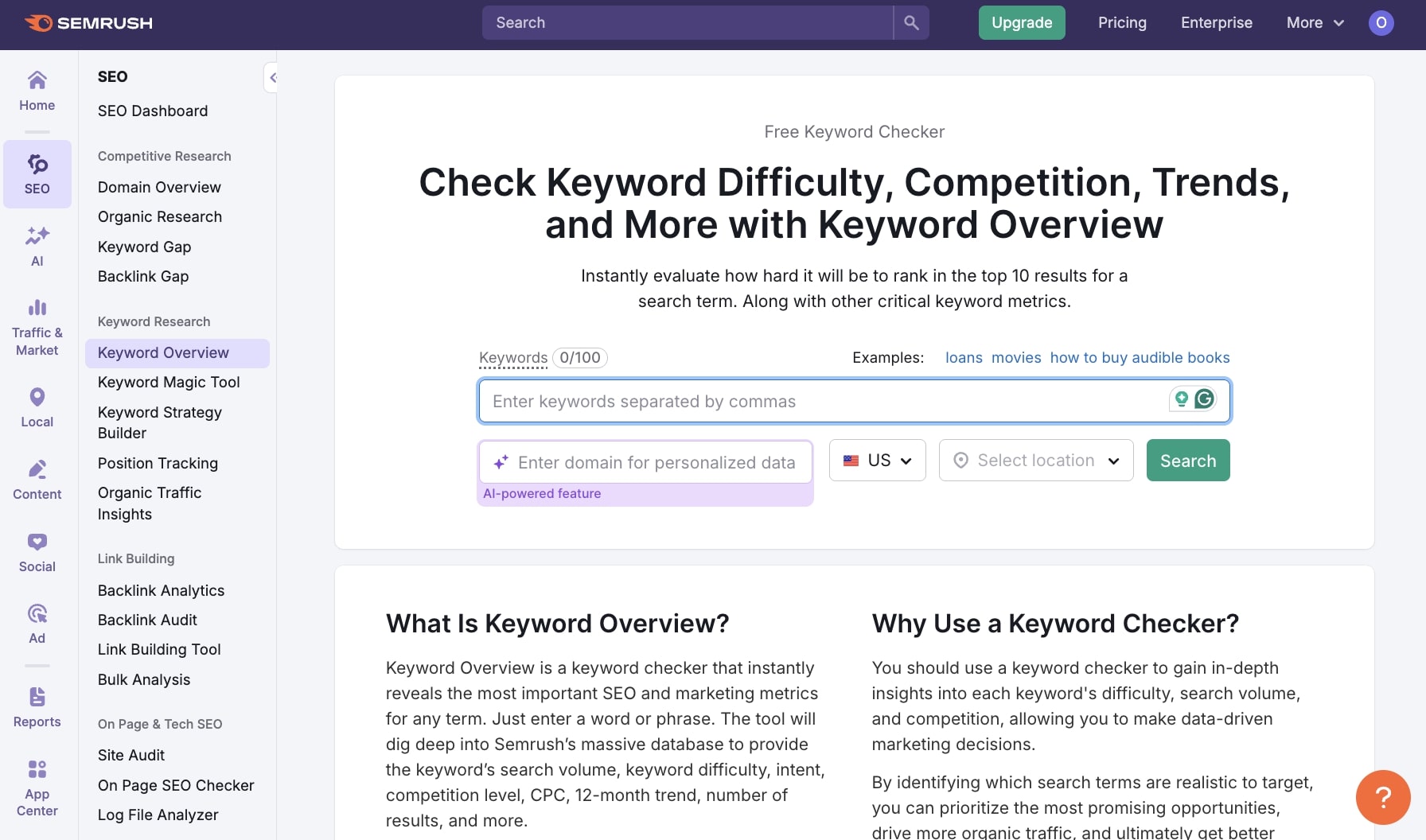
- Best for: Comprehensive competitor analysis
- How I use it: Analyze competitor domains to find keyword opportunities
- Pricing: Starts at $139.95/month
Semrush is the first keyword research tool I used back in 2016 when I was a content marketing manager at a small SaaS startup. It's very similar to Ahrefs in that you can do all the standard keyword research stuff as well as analyze your competitors. I would say Semrush is the best when it comes to competitor analysis.
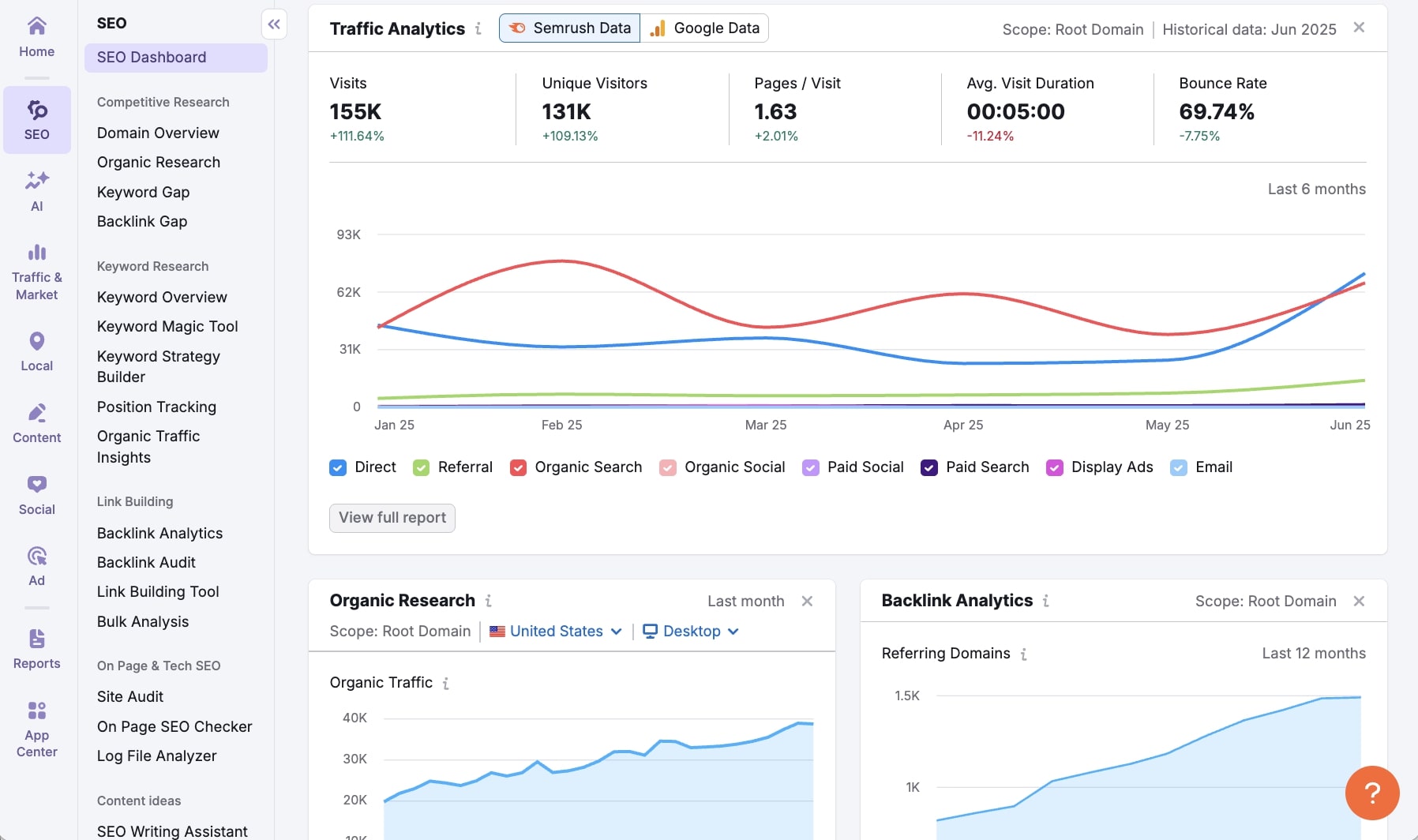
For example, you can type in the domain of a competitor site and analyze the keywords they're ranking for to help inform your own strategy. It's a really powerful tool and it's probably the biggest SEO tool on the market in terms of their revenue. And they're a publicly traded company. I can't recall any other SEO tools that have IPO'd in the past.
Semrush pricing
Here are Semrush's pricing plans:
- Pro: $139.95 per month, with 500 keyword tracking and 10,000 results per report
- Guru: $249.95 per month, with 1,500 keyword tracking and 30,000 results per report
- Business: $499.95 per month, with 5,000 keyword tracking and 50,000 results per report
Semrush is definitely on the pricier side, but you get access to a massive suite of tools beyond just keyword research, including site audits, backlink analysis, and content marketing tools.
If you want to see all the specific features of each plan, you can check out their pricing page here.
Semrush reviews and ratings
Here's what customers of Semrush rate the platform on third-party review sites:
- G2: 4.5 star rating (from +2,713 reviews)
- Capterra: 4.6 star rating (from +2,301 reviews)
8. LowFruits
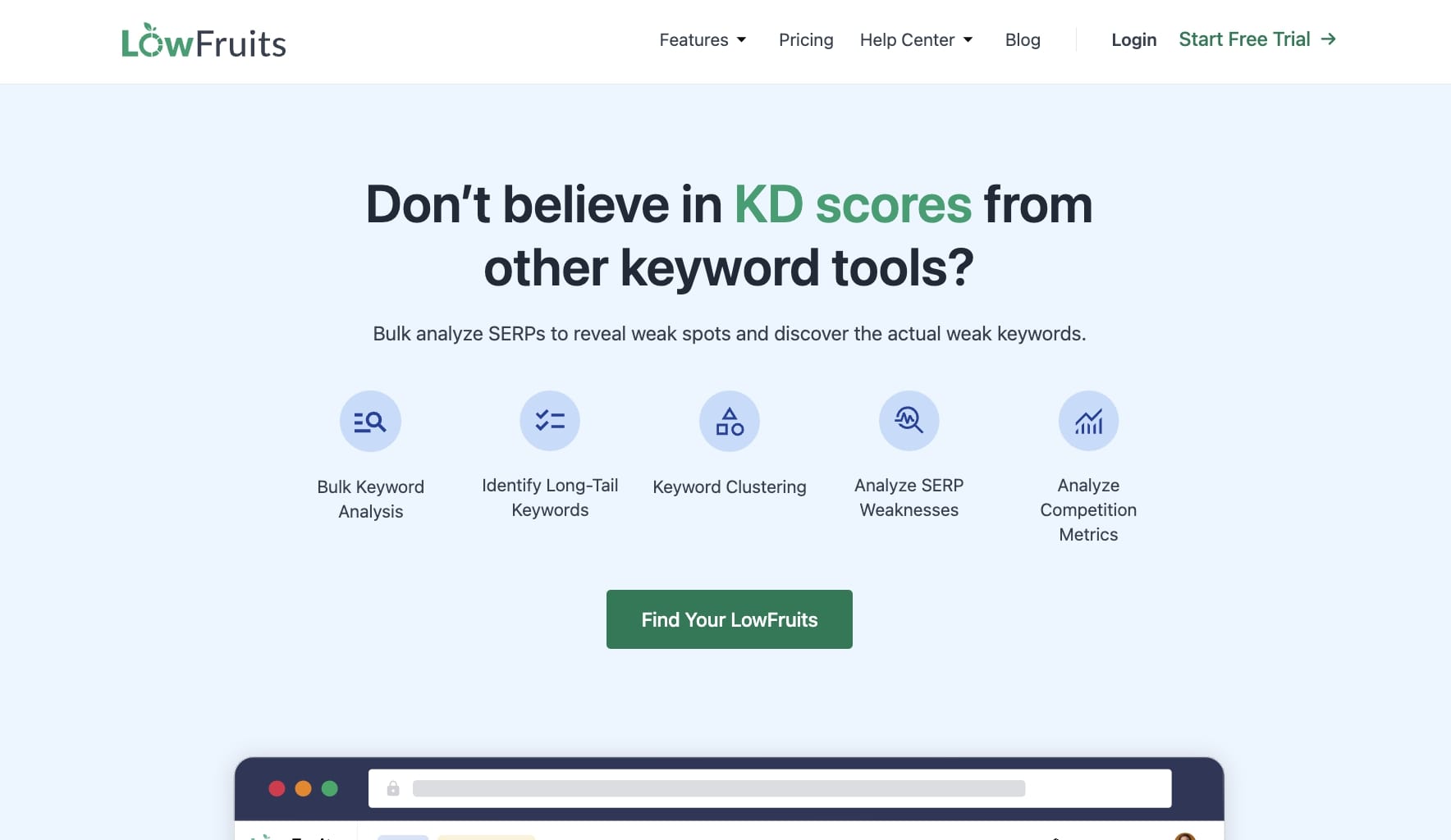
- Best for: Finding low competition keywords for new sites
- How I use it: Analyze SERPs to find keyword gaps
- Pricing: Starts at $29.90/month
LowFruits is a pretty underrated keyword research tool. It's great for helping you find low competition keywords that, as you guessed from the name, are low-hanging fruit.
The tool helps analyze SERPs and find gaps where there is not a lot of authority or competition. This then informs the types of keywords that you can go after. It's great if you're a small startup and you don't have a large Domain Authority.
And their core value prop is that they're kind of taking a jab at Ahrefs' KD scores. They're flipping that by saying that it'll help you find actual keywords that your website has a chance of ranking for.
LowFruits pricing
Here are LowFruits' pricing plans:
- Standard: $29.90 per month, with 3,000 credits and 100 tracked keywords
- Premium: $79.90 per month, with 10,000 credits and 500 tracked keywords
Both plans include Domain Explorer, boosted keyword finder, and access to millions of SERP scores. Credits are used for keyword analyses, competitor extractions, and sitemap analyses. The tool is specifically designed for finding achievable ranking opportunities, so it’s great for newer sites.
If you want to see all the specific features of each plan, you can check out their pricing page here.
There are no third-party review sites that have listed LowFruits.
9. Surfer
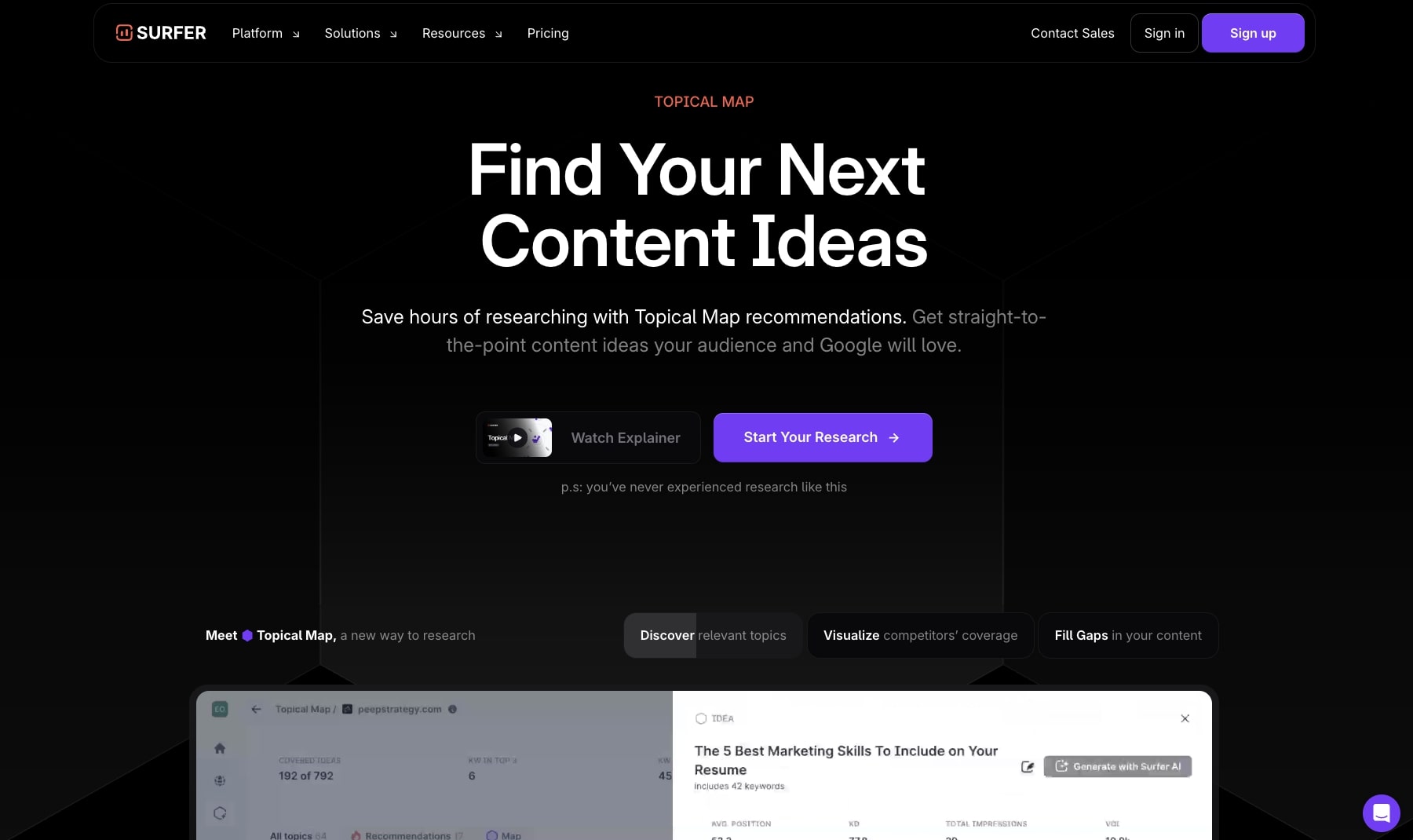
- Best for: Content optimization with keyword research
- How I use it: Build topical authority with their topical map feature
- Pricing: Starts at $99/month
At its core, Surfer is a content optimization platform. However, they also have a keyword and topic research tool built into their platform. They have a topical map feature where you can integrate your website and it'll give you ideas based on where you have topical authority.
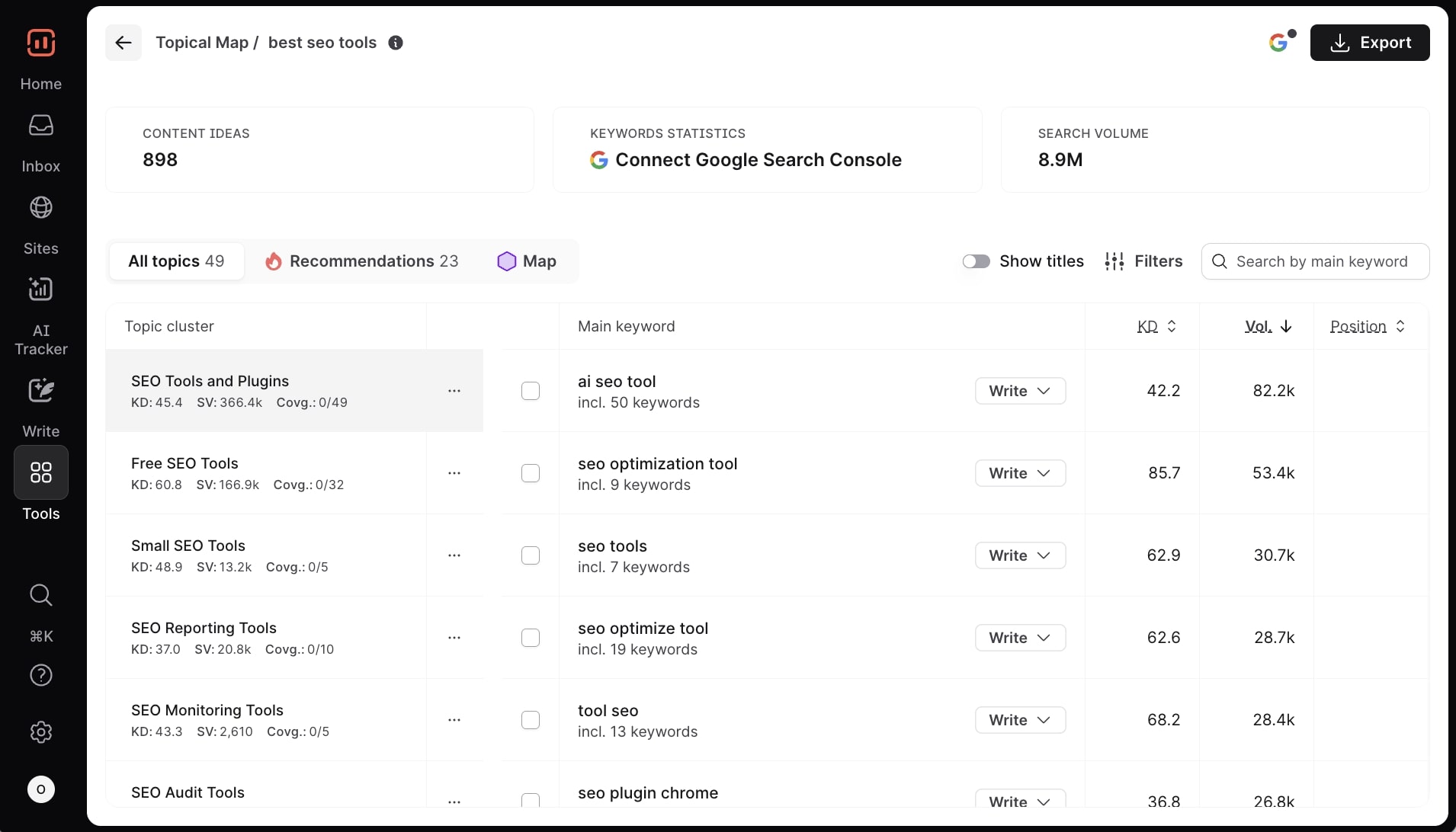
This can help you find more keywords to go after so you can build topical authority in your niche. They also have a Chrome extension that you can use that will help you generate keyword ideas right in the SERPs.
Surfer pricing
Here are Surfer's pricing plans:
- Essential: $99 per month (currently $79/month with annual billing), includes article creation, optimization, and AI writing
- Scale: $219 per month (currently $175/month with annual billing), includes everything in Essential plus 5× higher limits and AI visibility tracking
- Enterprise: Custom pricing, includes API access, white-labeling, and priority support
All plans include the keyword research tool, SERP analyzer, and content editor. But, Surfer is not a keyword research tool at its core. It's a complete content optimization platform that helps you write content (with keyword research as a small feature).
If you want to see all the specific features of each plan, you can check out their pricing page here.
Surfer reviews and ratings
Here's what customers of Surfer rate the platform on third-party review sites:
- G2: 4.8/5 star rating (from +537 reviews)
- Capterra: 4.9/5 star rating (from +418 reviews)
10. Google Search Console
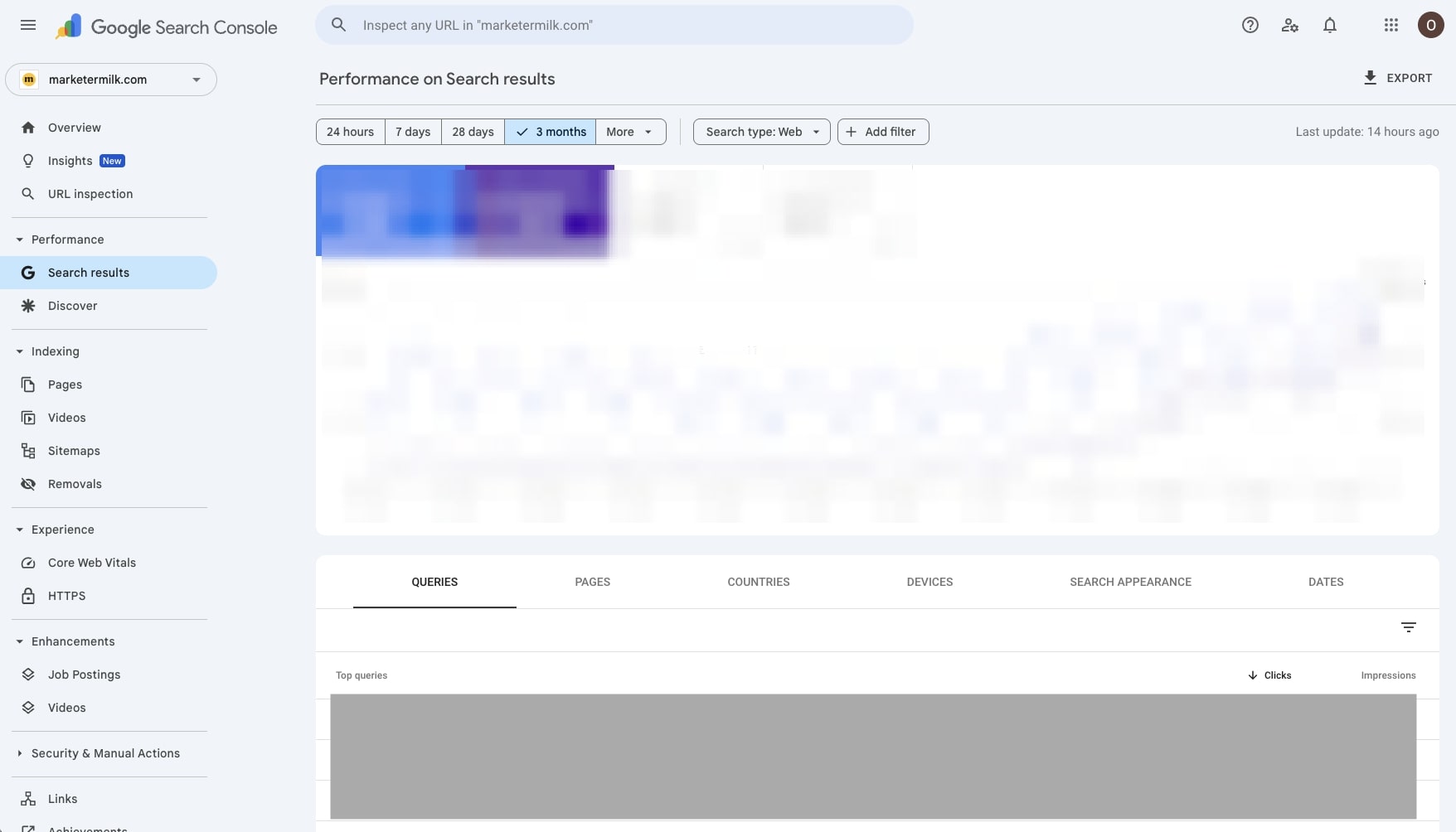
- Best for: Finding keyword opportunities from existing traffic
- How I use it: Sort queries by impressions to find untapped keywords
- Pricing: Free
Google Search Console is the OG platform of keyword research tools. However, you can only really use this as a keyword research tool if you already have traffic going to your site.
If you do have search traffic going to your site (I'd say at least 100 clicks per day), then you can use GSC. Here's what you want to do: go to all of your queries that you're ranking for and sort them by highest impressions.
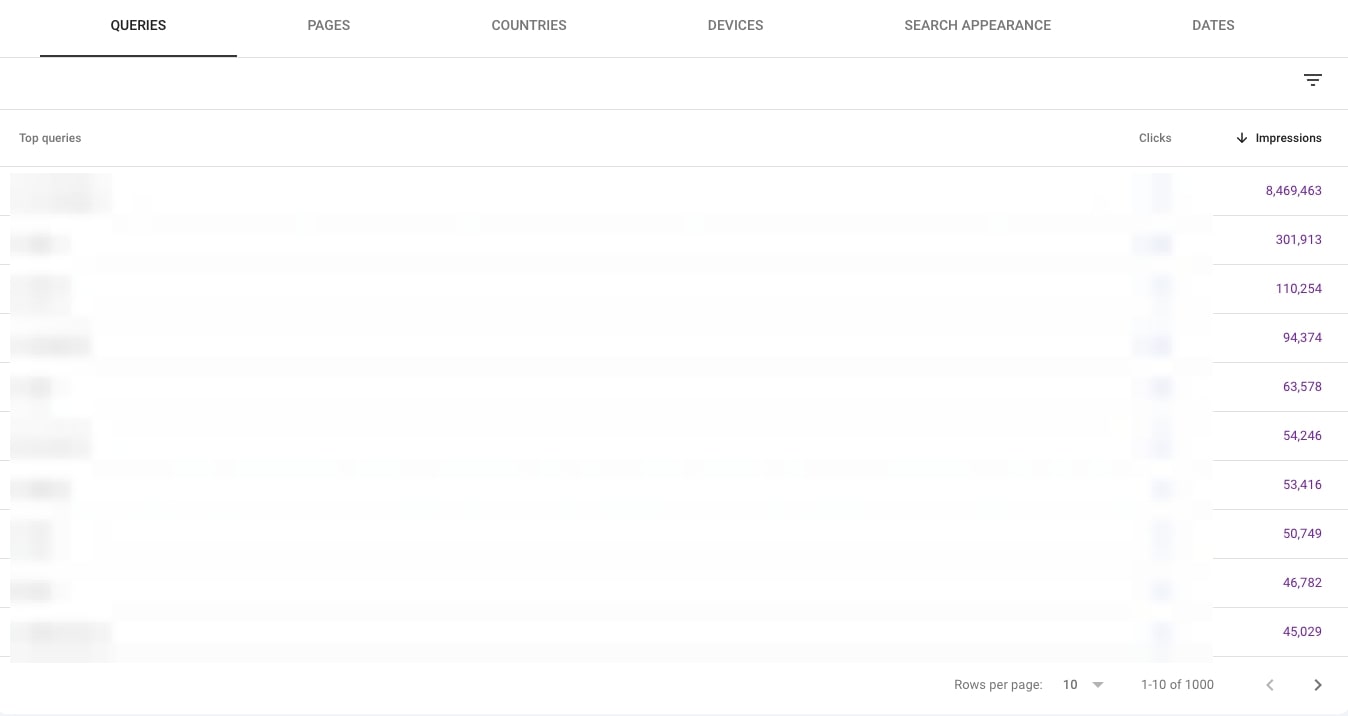
Next, you want to look at which keywords have high impressions but low clicks or really no clicks. And you want to make note of these keywords. If you already have content on these keywords, then you want to go and add these keywords into that existing content. But if you don't have any pages ranking for these keywords, or you do have a page that is ranking on say the third page, it might be worth creating a brand new page targeting one of these keywords.
The tool is completely free to use and I actually would be really worried if you're not already using Google Search Console every day to analyze your SEO performance.
11. Clicks.so
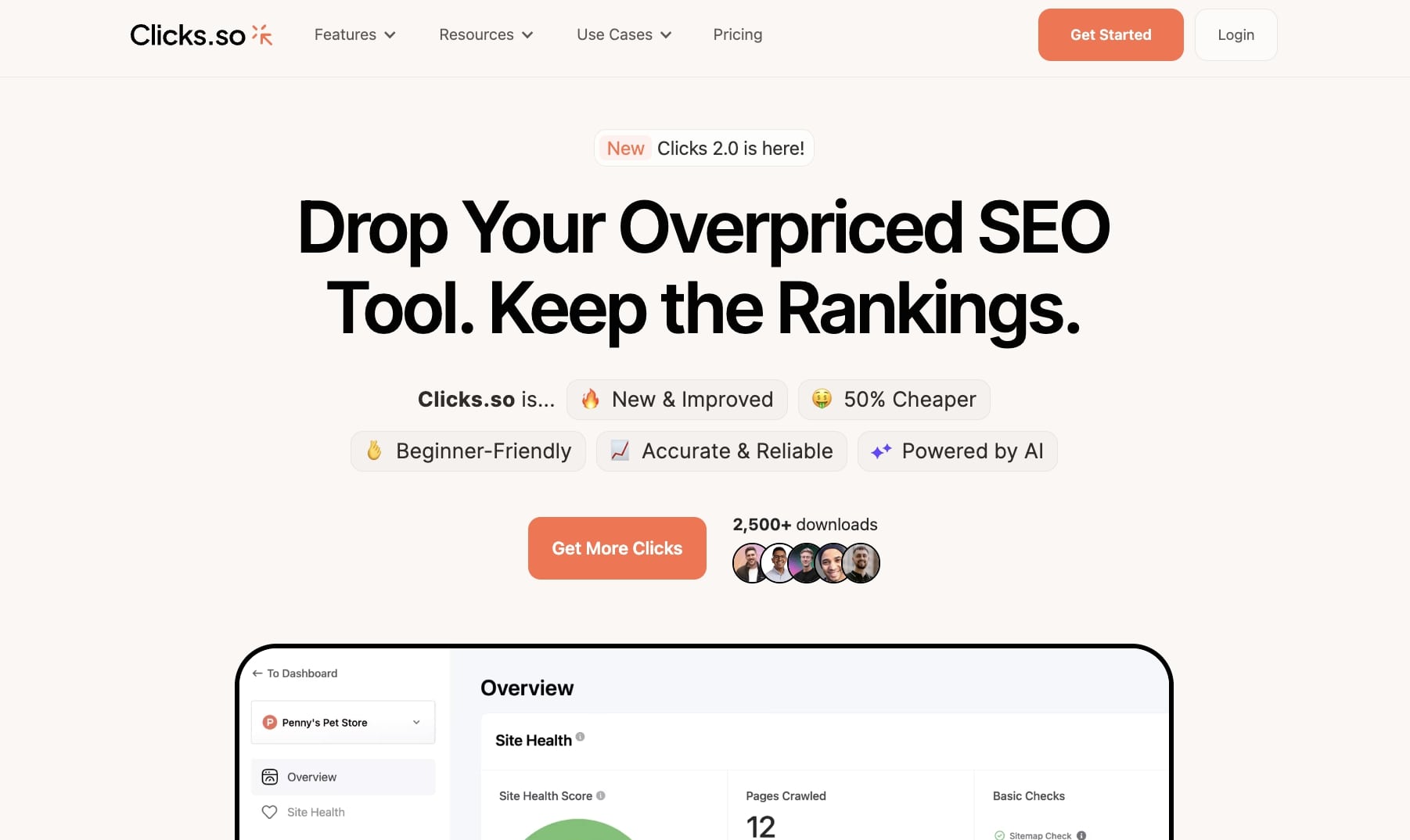
- Best for: Budget-friendly all-in-one SEO tool
- How I use it: Basic keyword research and site analysis
- Pricing: Starts at $24.99/month
Clicks.so is another budget-friendly SEO tool very similar to KeySearch. It has all the standard features of an SEO tool including keyword research, site analysis, backlink analysis, site audits, and even rank tracking.
It's a great tool if you're just starting out. However, I have used the tool in the past and I did notice that the search volume data was a bit different than what I saw in tools like Ahrefs, KeySearch, and even Google Keyword Planner. So it was hard to know what to trust from the data.
The platform was also recently acquired by Pait Digital, a Webflow SEO agency. I don't know if that detail really matters but I thought I would include it anyways.
Clicks.so pricing
Here are Clicks.so's pricing plans:
- Solo: $24.99 per month, with 5 projects and 100 keyword reports per month
- Freelancer: $49.99 per month, with 10 projects and 250 keyword reports per month
- Agency: $74.99 per month, with 15 projects and 500 keyword reports per month
The pricing is on par with other budget SEO tools, though the data accuracy concerns might make you want to cross-reference with other tools.
If you want to see all the specific features of each plan, you can check out their pricing page here.
Clicks.so reviews and ratings
Here's what customers of Clicks.so rate the platform on third-party review sites:
There aren't a lot of reviews for Click.so, so take the 5 star reviews above with a grain of salt.
12. Ubersuggest
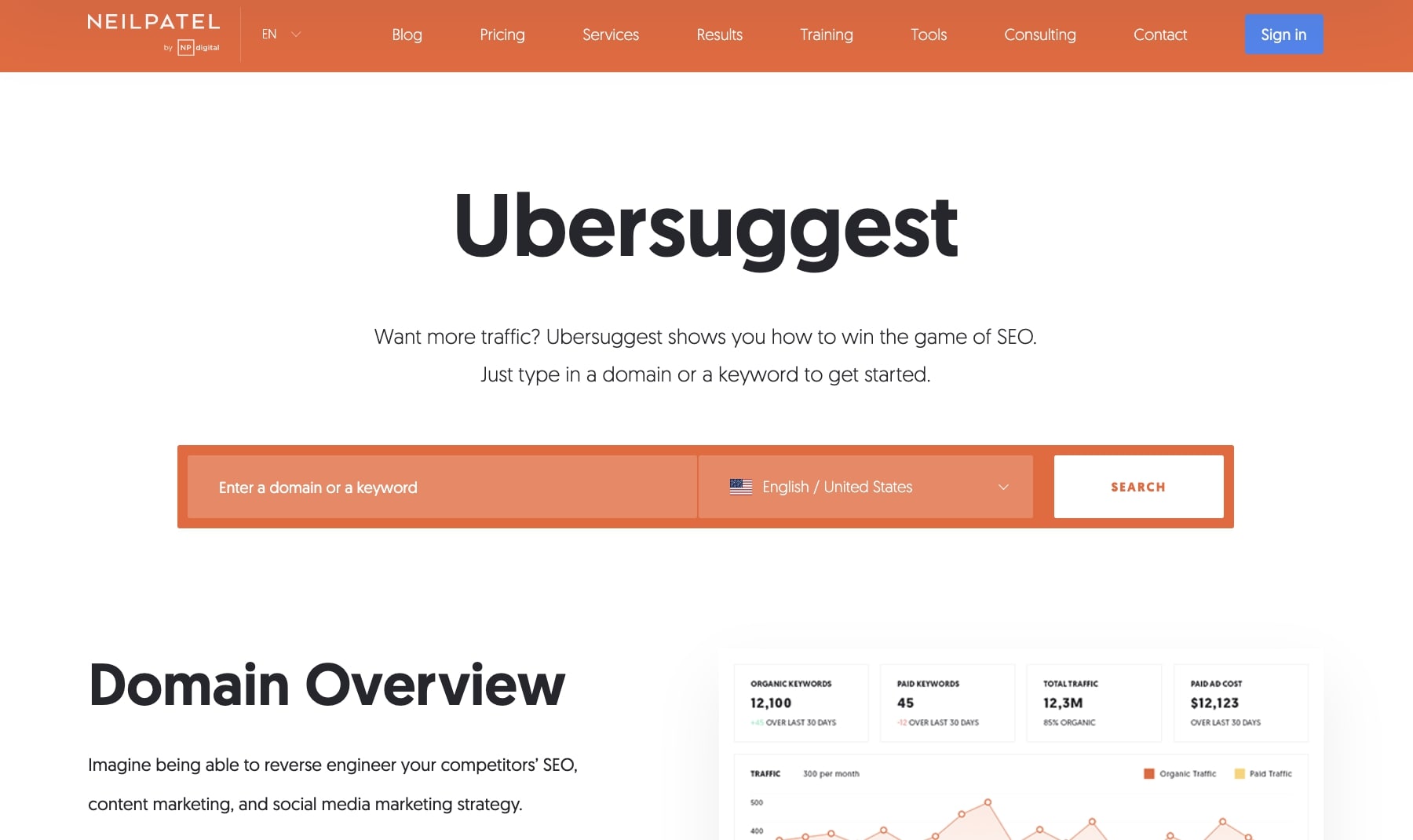
- Best for: Analyzing keyword metrics and location data
- How I use it: Deep dive into search volume and geographic breakdown
- Pricing: Free limited version, then starts at $29/month
Ubersuggest is a pretty well-known keyword research tool that has been around for some time now. A few years ago, it was acquired by Neil Patel (a famous SEO blogger), and has now been integrated into his own website.
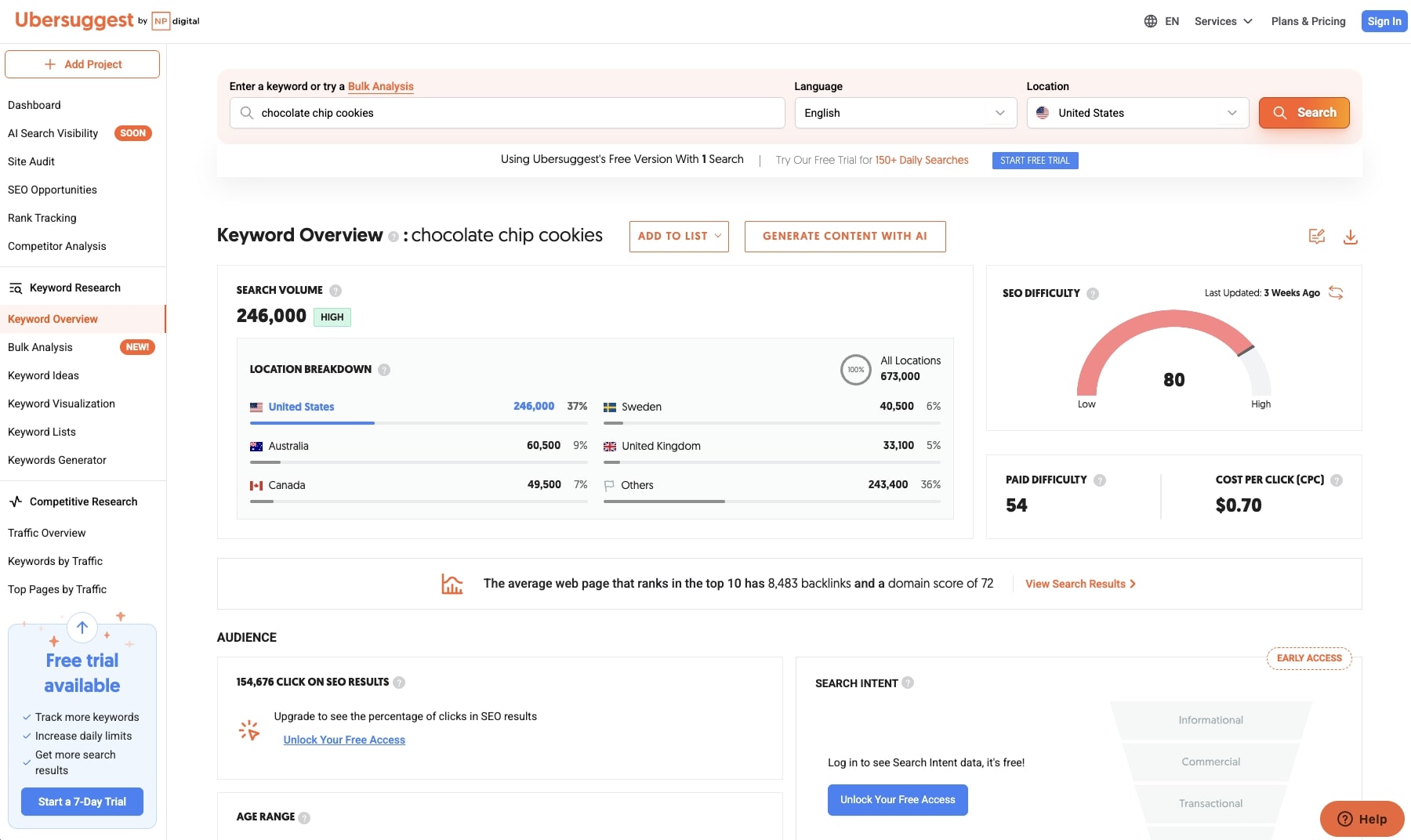
The platform has a similar feel to Semrush and it's great at analyzing data on a specific keyword. I wouldn't say it's the best tool for finding new keywords to target, but once you have found a keyword and you want to analyze its search volume, the location breakdown of which countries people are searching for that keyword the most, the cost per click, and its average difficulty, Ubersuggest does a solid job.
You can start using the tool for free but you'll have to pay shortly after.
Ubersuggest pricing
Here are Ubersuggest's pricing plans:
- Individual: $29 per month, with 1 domain, 150 searches per day, and 125 tracked keywords
- Business: $49 per month, with 7 domains, 300 searches per day, and 150 tracked keywords per domain
- Enterprise: $99 per month, with 15 domains, 900 searches per day, and 300 tracked keywords per domain
The tool offers a free trial to get started, and all plans include competitor analysis, site audits, and the ability to export data in various formats.
If you want to see all the specific features of each plan, you can check out their pricing page here.
Ubersuggest reviews and ratings
Here's what customers of Ubersuggest rate the platform on third-party review sites:
- G2: 4.2/5 star rating (from +143 reviews)
- Capterra: 4.4/5 star rating (from +93 reviews)
13. Clearscope
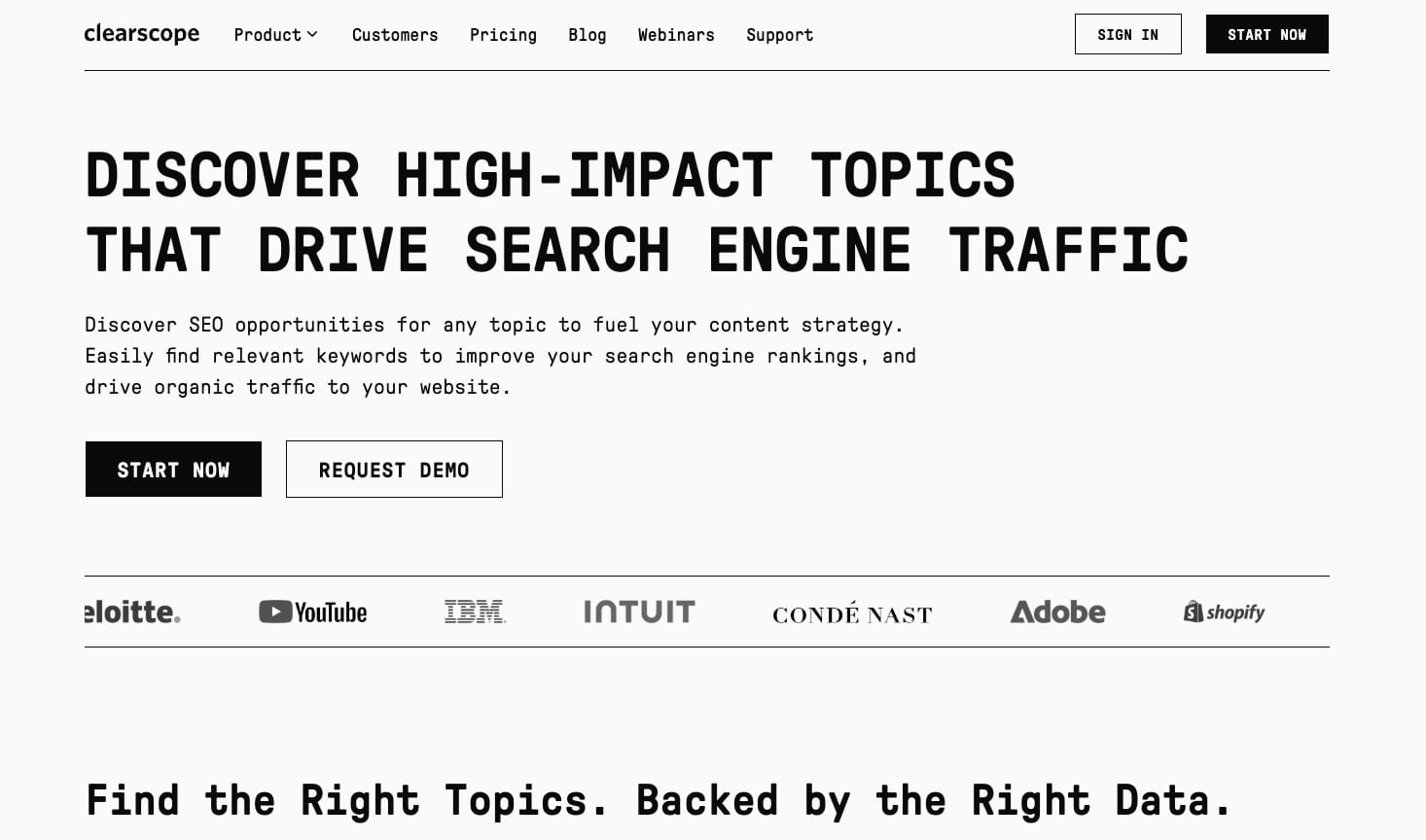
- Best for: Content optimization with topic discovery
- How I use it: Find keywords and related terms to include in articles
- Pricing: Starts at $189/month
Clearscope is one of my favorite SEO tools of all time and their CEO, Bernard, has become a good friend of mine over the past 6 years of using the tool. At its core, Clearscope is like Surfer in that it's a content optimization tool. However, they have a Topics Explorer tool that is really cool.
You can discover which keywords to target, and once you find a keyword you want to write about, you can generate a report that tells you what other keywords you should include in that article.
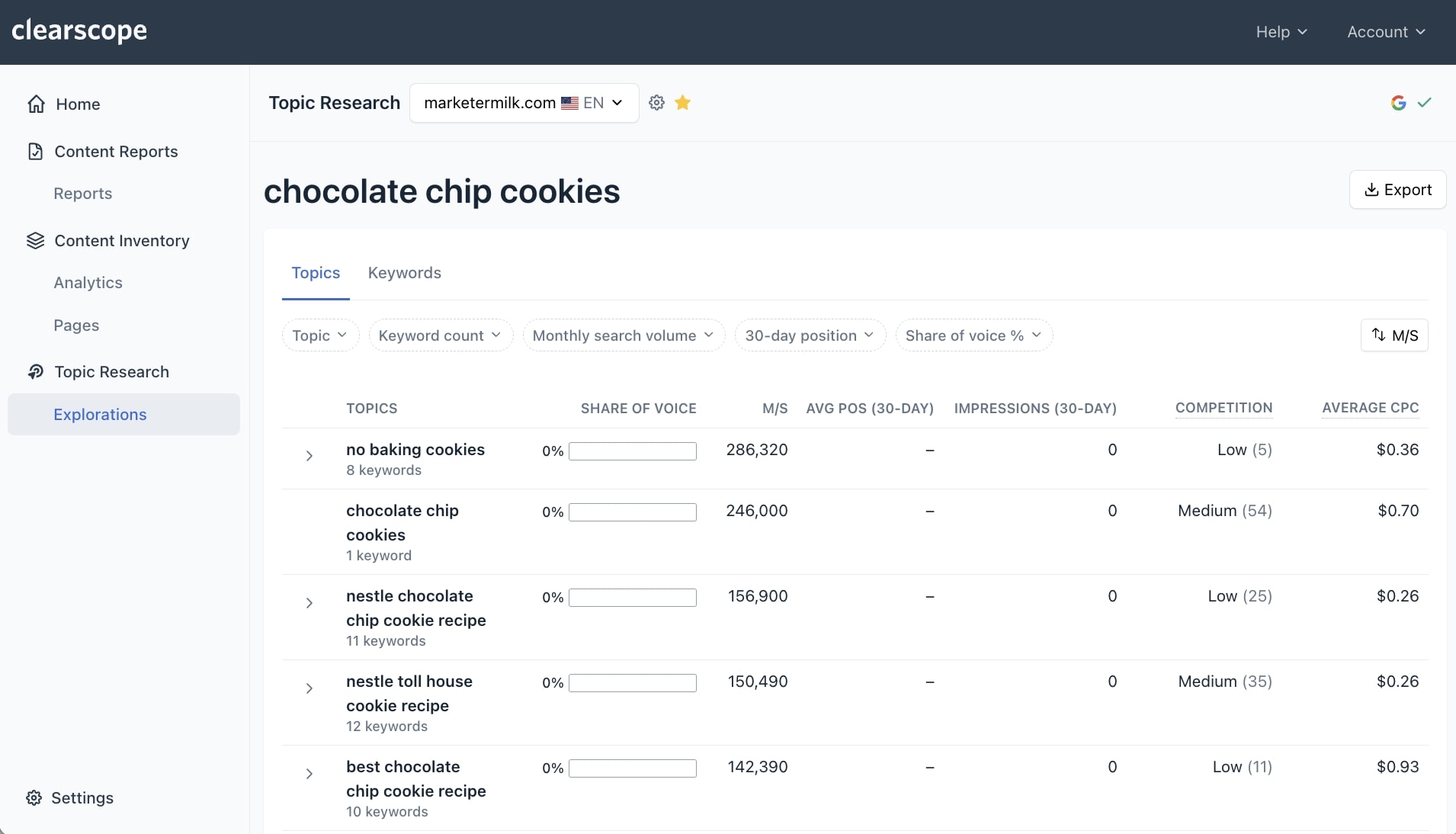
It's a super powerful tool and there have been so many companies that have now copied Clearscope. It's not the cheapest of tools, but I am working on asking Bernard to give me a discount code so I can give it to my readers.
Clearscope pricing
Here are Clearscope's pricing plans:
- Essentials: $189 per month, with 20 monthly content reports and 50 keyword discoveries
- Business: $399 per month, with 20 monthly content reports, 50 keyword discoveries, and dedicated account manager
- Enterprise: Custom pricing, includes SSO, custom credits, and crawler whitelisting
The content reports are the best in the game (I’ve tested a handful of similar tools) and help you understand exactly what topics to cover in your articles.
If you want to see all the specific features of each plan, you can check out their pricing page here.
Clearscope reviews and ratings
Here's what customers of Clearscope rate the platform on third-party review sites:
- G2: 4.9/5 star rating (from +91 reviews)
- Capterra: 4.9/5 star rating (from +60 reviews)
14. Bing Webmaster Tools
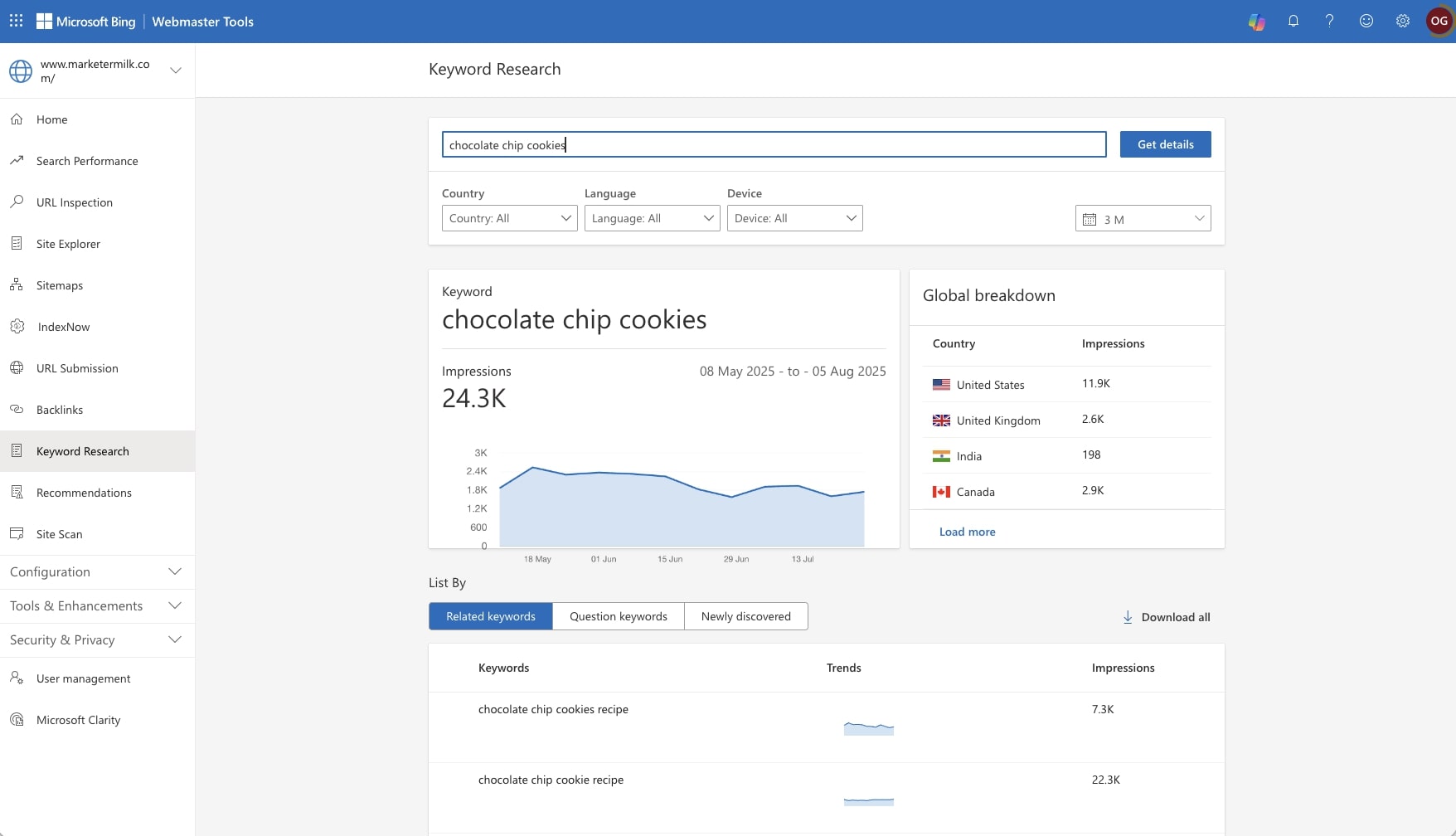
- Best for: Keyword research specific to Bing search
- How I use it: Find keyword opportunities from Bing traffic
- Pricing: Free
Next up is a tool I actually don't see talked about much, but it's Bing Webmaster Tools. This is very similar to Google Search Console in that it probably works the best if you already have traffic from Bing search engine.
However, Bing sort of outdoes Google here in that they have a ‘Keyword Research’ tab specifically inside of the Webmaster Tools product. I'll be honest, it doesn't give a lot of data but it is useful because most keyword research tools show you data from Google and not Bing.
The tool basically helps you analyze keywords and give you suggestions with questions. It will show you the trending data, what countries this keyword is used most in, and impressions. The impressions don't mean clicks though, which is why I said that it's maybe not the most accurate.
I personally get only less than 5% of my traffic from Bing, but it still adds up to a decent amount given I'm approaching 200,000 visitors a month on this website. So I do use it from time to time.
15. Keywords Everywhere

- Best for: SERP analysis with Chrome extension
- How I use it: Get search volume data in Google autocomplete
- Pricing: Free version, paid plans start at $72/year
Keywords Everywhere is another OG keyword research tool that I recommend any beginner use. It's a free SEO Chrome extension that helps you analyze the SERP as you're searching keywords.
The super powerful thing about this tool is that if you are using the Google Autocomplete feature, it will actually show you search volume data for the autocomplete results given that you use a paid plan.
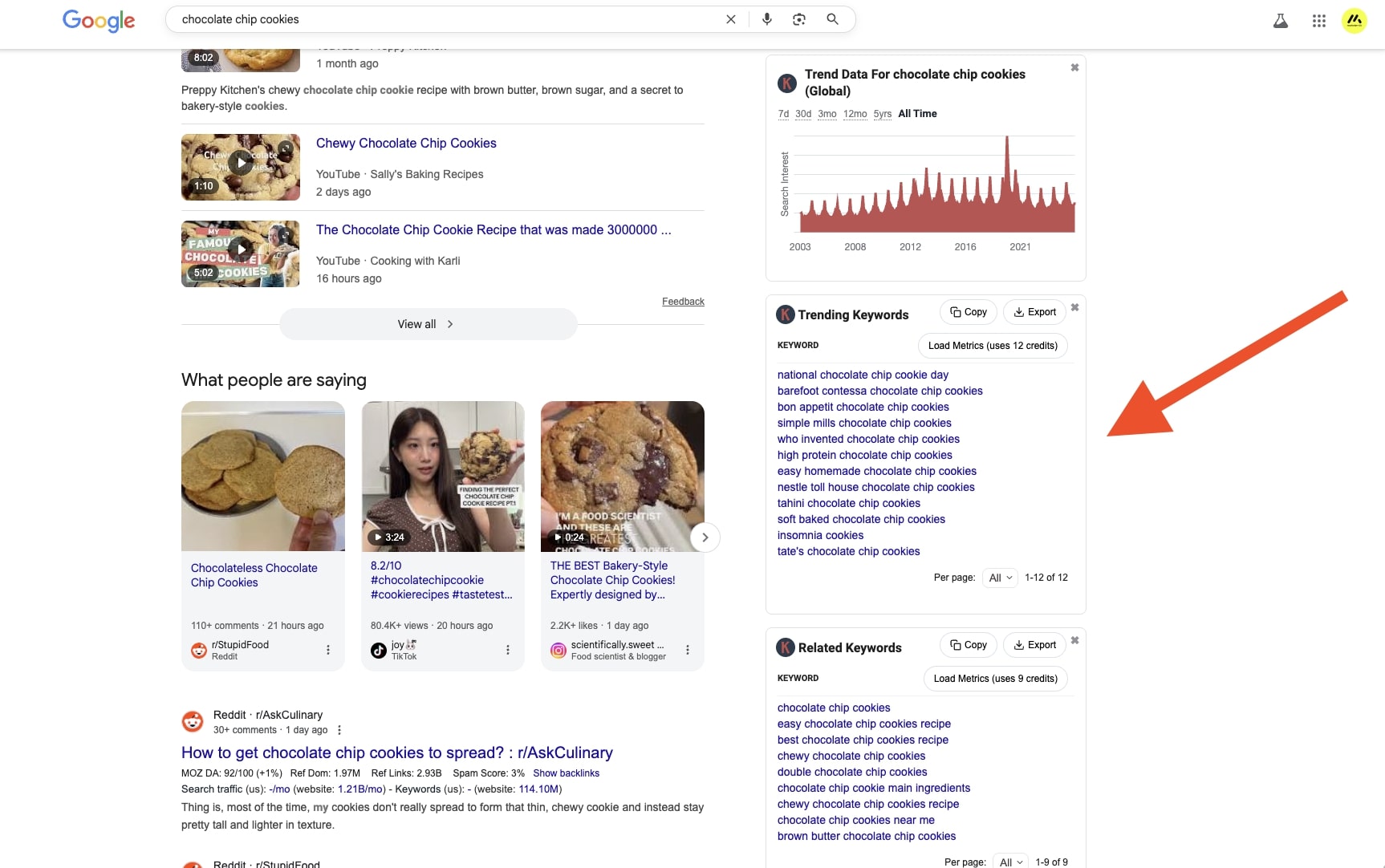
And when you search a keyword in Google, you'll also see a SERP feature on the right side that gives you matching keyword ideas.
Overall it's a great Chrome extension I recommend every SEO download.
Keywords Everywhere pricing
Here are Keywords Everywhere's pricing plans:
- Silver: $72 per year (400,000 credits), with 5 user seats and top 2,000 keywords per website
- Gold: $300 per year (2 million credits), with 20 user seats and top 5,000 keywords per website
- Platinum: $960 per year (8 million credits), with 100 user seats and top 10,000 keywords per website
All plans include access to SEO Minion and premium ChatGPT prompts. The credit-based system means you only pay for what you use, making it cost-effective for occasional keyword research.
If you want to see all the specific features of each plan, you can check out their pricing page here.
There are no user ratings on third-party review sites for Keywords Everywhere.
16. ProductRank.ai
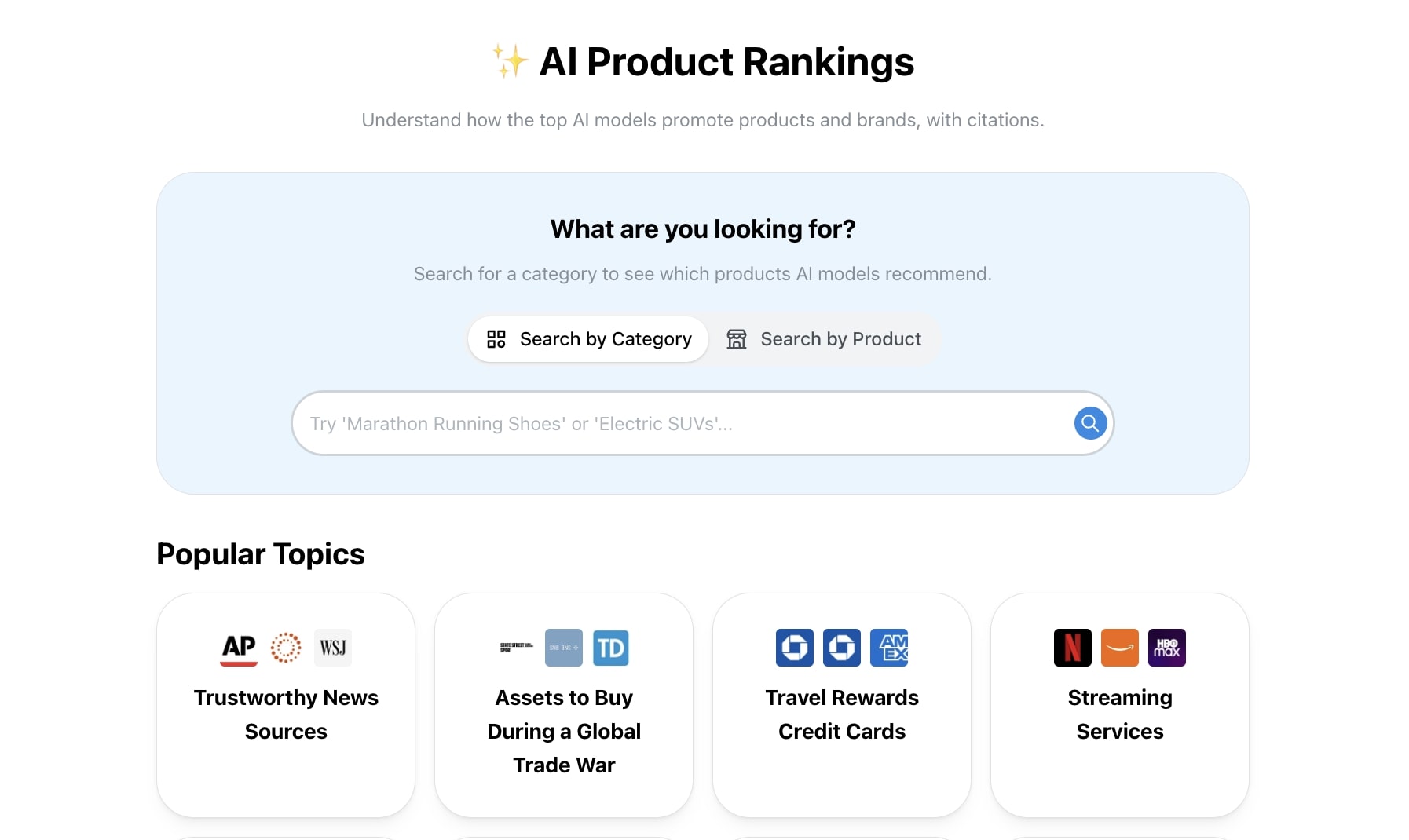
- Best for: Tracking AI search engine visibility
- How I use it: Check which brands appear in AI citations
- Pricing: Free
At first glance you might not think ProductRank.ai is a keyword research tool, but I decided to include it in this list because it is an amazingly free AI visibility tracker.
Everybody's talking about rankings in LLMs and AI search engines like Perplexity or AI Overviews.
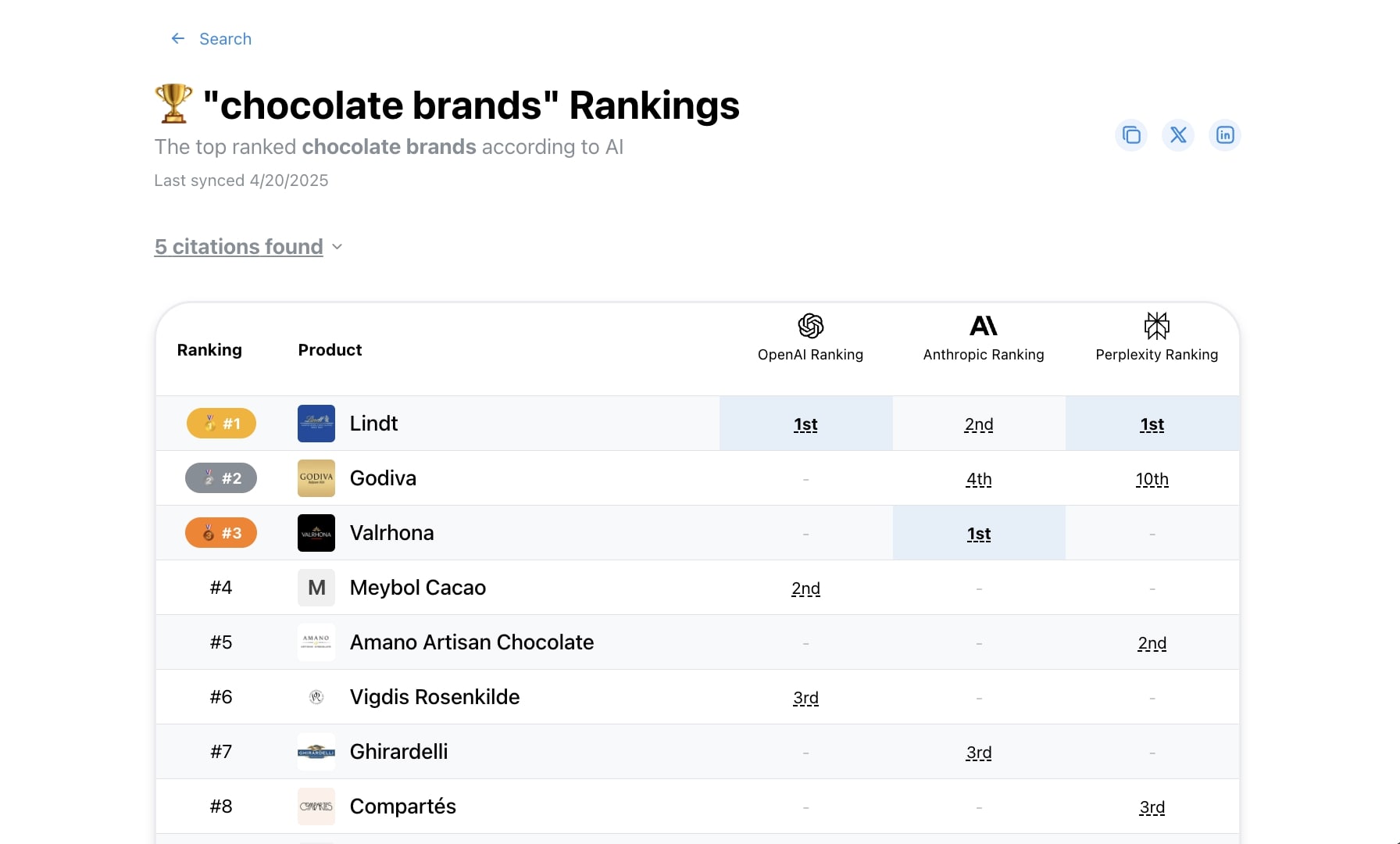
If you have an idea of a keyword you want to rank for (in this case a question or query), you can paste it into this free platform and it will tell you the types of citations and brands showing up in ChatGPT, Claude, and Perplexity.
Given that LLM SEO is starting to become a thing, I recommend everyone play around with this tool and tools just like it (I link to one just a few paragraphs above). This way you're positioned in a great place to capitalize on the whole AI wave as an SEO marketer.
17. Google Trends
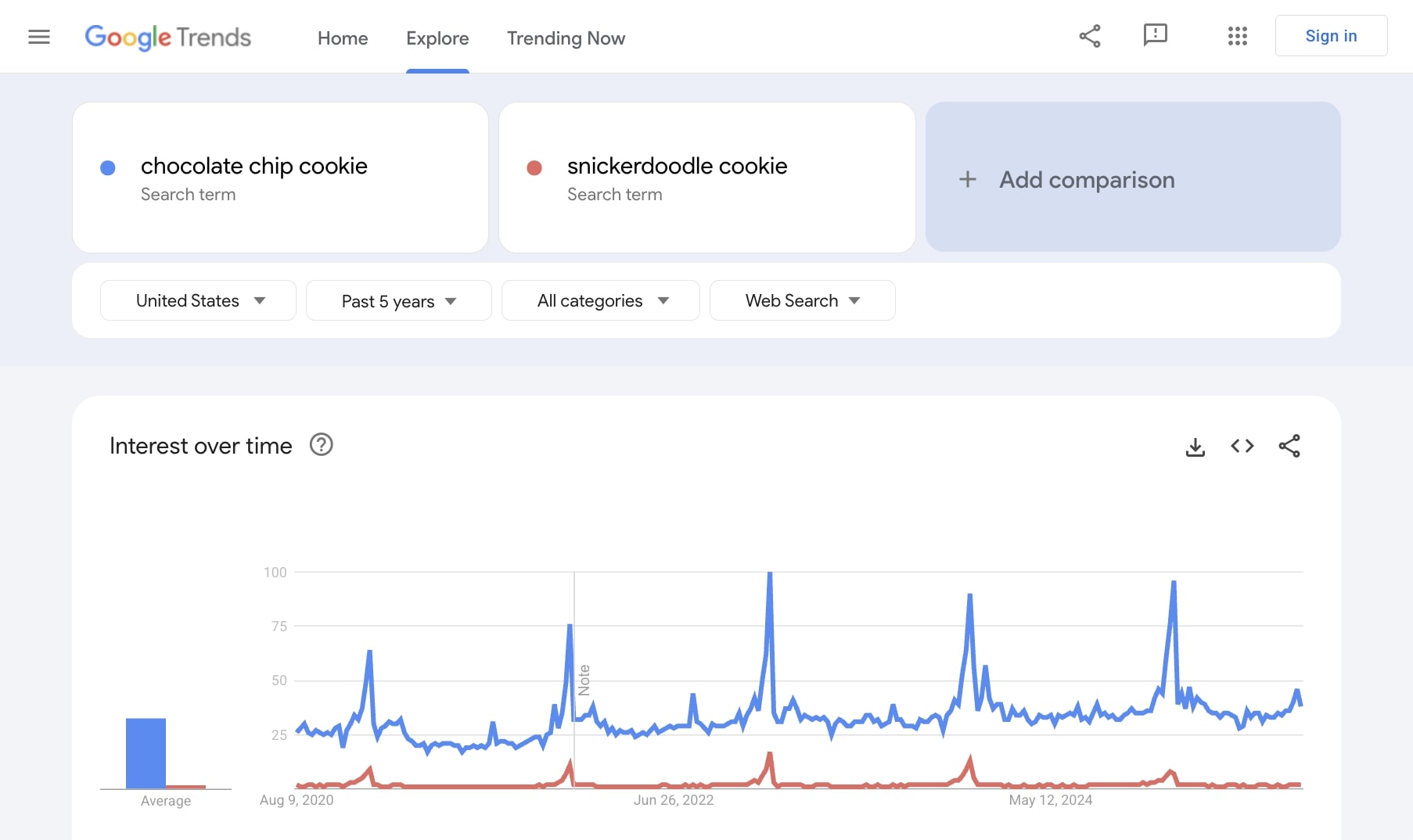
- Best for: Analyzing keyword trends and seasonality
- How I use it: Compare similar keywords to prioritize
- Pricing: Free
Google Trends is another great free keyword research tool that you can use to analyze if a topic is trending or not. If you actually watch the hidden gem YouTube video I linked earlier in this blog post, you'll notice that my keyword research strategy uses Google Trends.
I mainly use this tool when I have two very similar keywords and I want to figure out which one I should prioritize for my blog post or landing page. So if you're ever stuck and don't know what to prioritize, you can use Google Trends.
It's also great if you use the Google Autocomplete feature and you want to confirm if whatever autocomplete suggestion is a keyword that has been around for a long time or if it's just starting to trend upwards (in that case it's probably a really good keyword to target).
18. AnswerThePublic
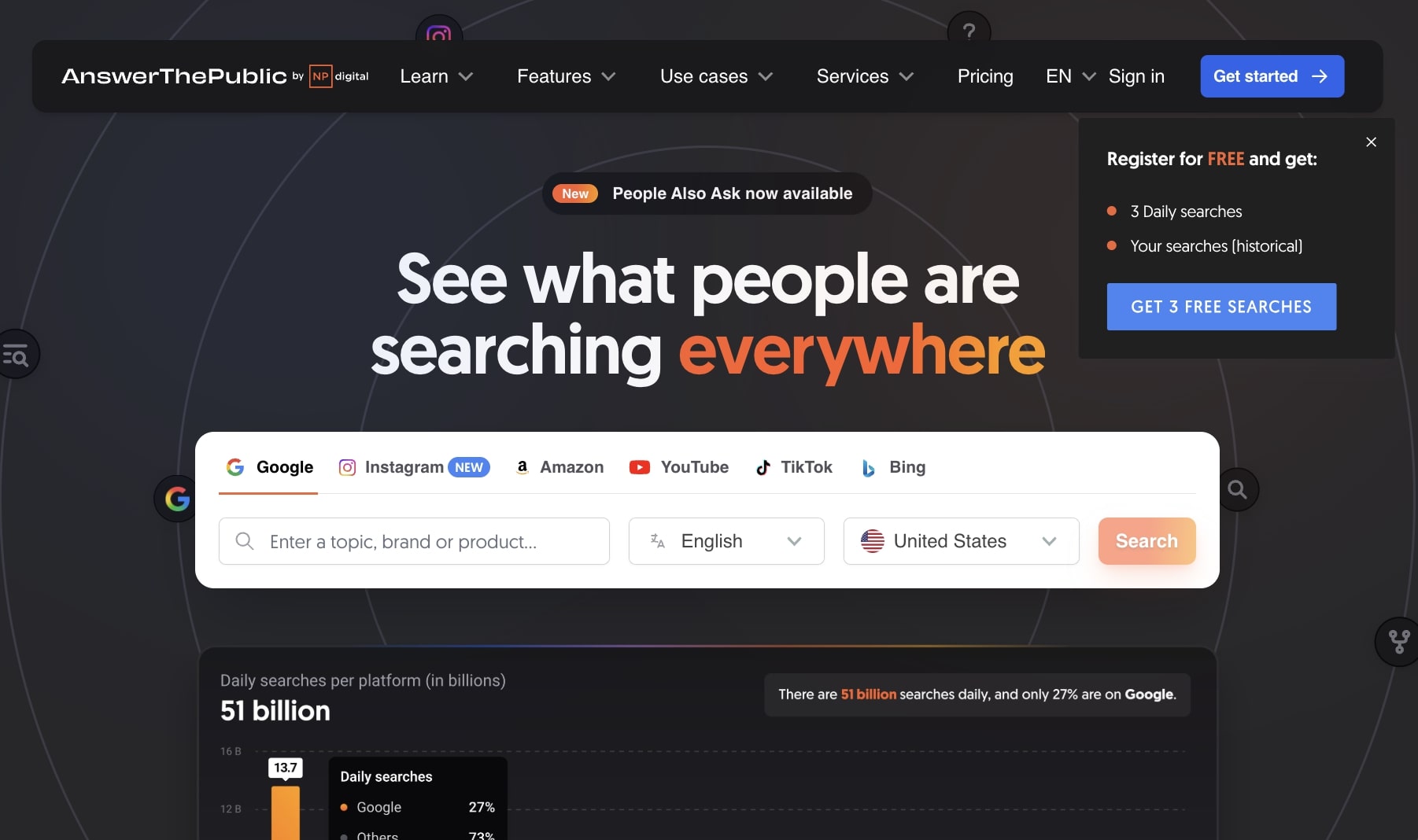
- Best for: Finding question-based keywords and PAA data
- How I use it: Generate H2/H3 subheading ideas from questions
- Pricing: Starts at $11/month
AnswerThePublic is another keyword research tool that has been around for a very long time. However, it was also acquired by Neil Patel (he seems to be buying all the free SEO tools and turning them into lead magnets).
It's not as great as it used to be but it still is a pretty solid platform if you want to find questions based off of a specific keyword. It's very similar to AlsoAsked or Answer Socrates. It actually takes those two tools and combines them into one. And also the great thing about it is that it gives you People Also Ask (PAA) questions, which are great for H2 and H3 subheading ideas.
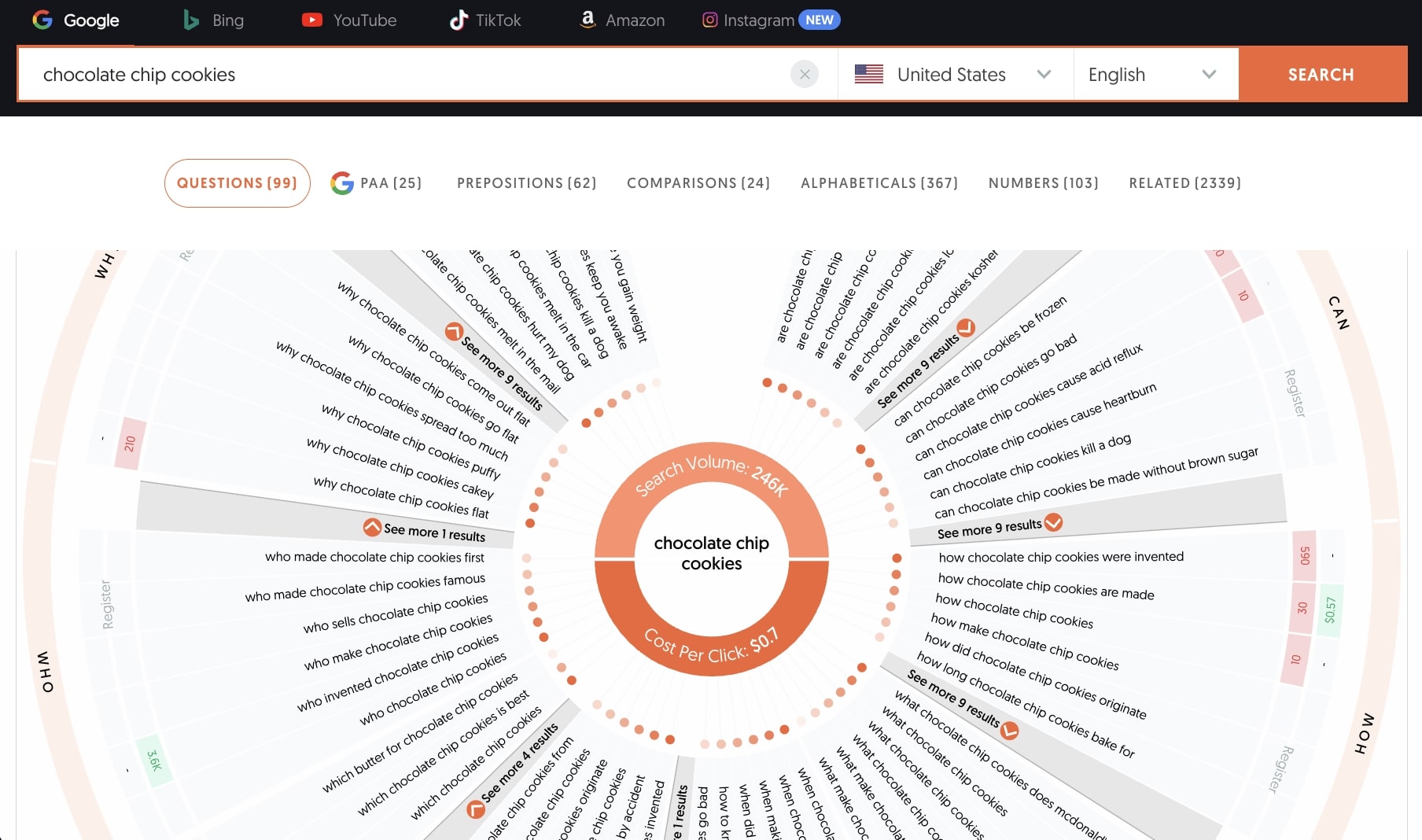
The other cool thing is that you can look at keywords in Bing, YouTube, TikTok, Amazon, and Instagram. So it's not just limited to Google, which is pretty cool if you ask me.
AnswerThePublic pricing
Here are AnswerThePublic's pricing plans:
- Individual: $11 per month, with 1 user and 100 searches per day
- Pro: $99 per month, with up to 3 users and unlimited searches per day
- Expert: $199 per month, with unlimited users and unlimited searches per day
All plans include CPC and search volume data, plus the ability to organize results with tags. There's a 7-day free trial available for all plans.
If you want to see all the specific features of each plan, you can check out their pricing page here.
AnswerThePublic reviews and ratings
Here's what customers of AnswerThePublic rate the platform on third-party review sites:
- G2: 4.5/5 star rating (from +37 reviews)
- Capterra: 4.6/5 star rating (from +10 reviews)
19. WordStream
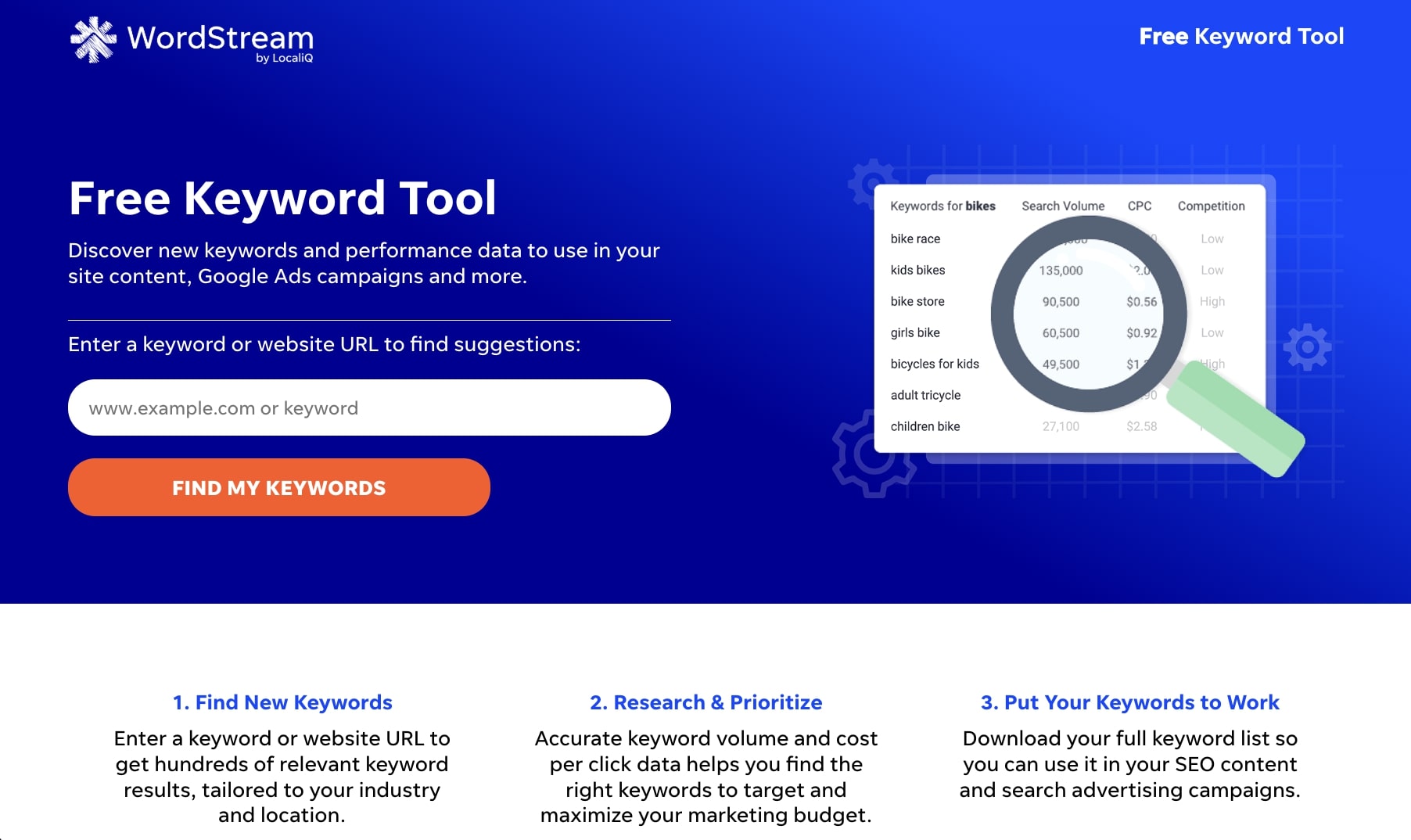
- Best for: PPC (pay-per-click) keyword research for Google Ads users
- How I use it: Quick search volume and CPC data
- Pricing: Free
WordStream is a Google Ads management tool, but I included it in this list because they have a free keyword research tool built in.
The tool essentially goes and finds search volume data and the CPC range for specific keywords. It takes all this data from Google Keyword Planner, which is already free. So it makes sense why this tool is also free.
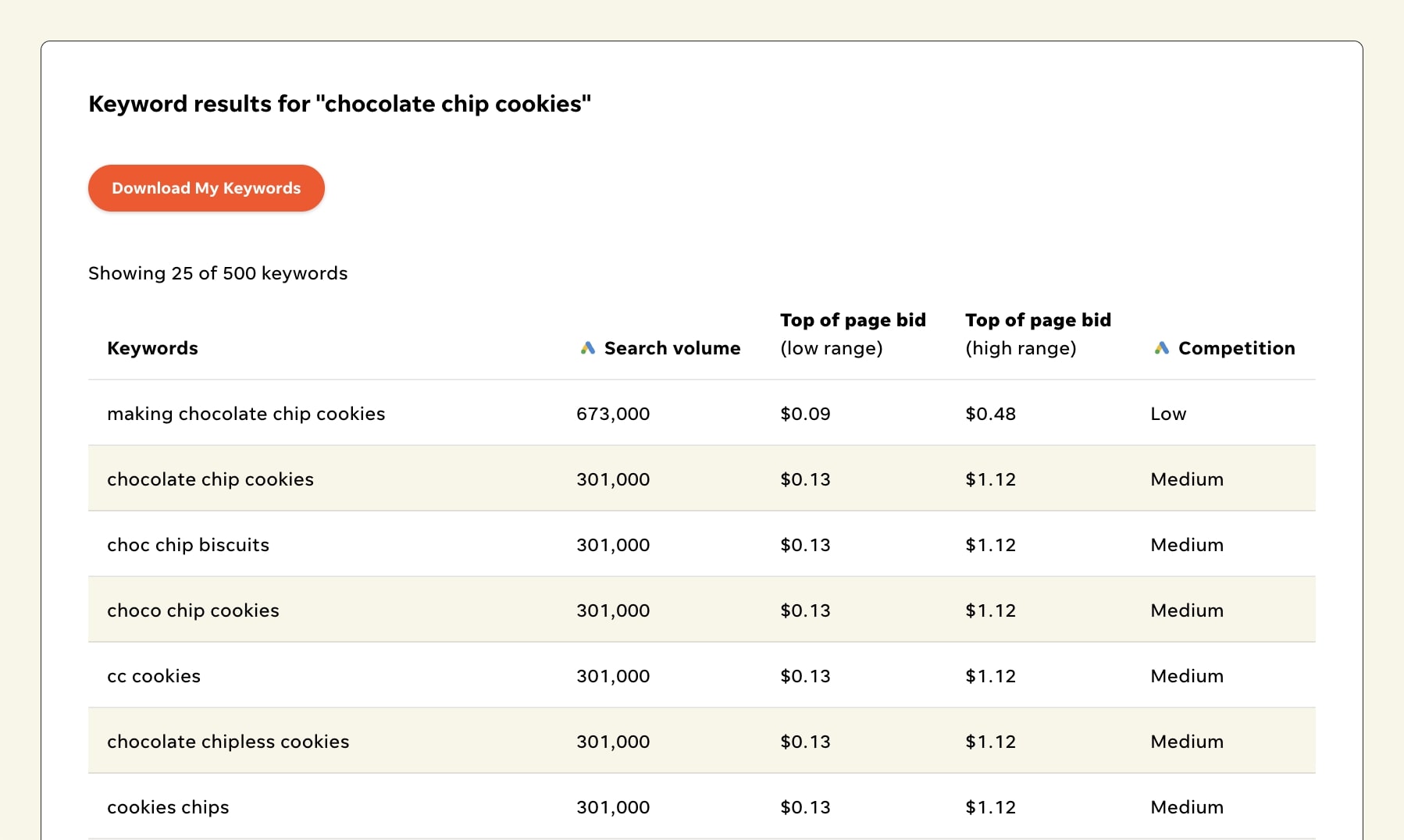
However, I decided to include it in this list because if you're using WordStream or if you're running PPC Google Ads, then it's worth noting that this tool exists.
20. ChatGPT (warning)
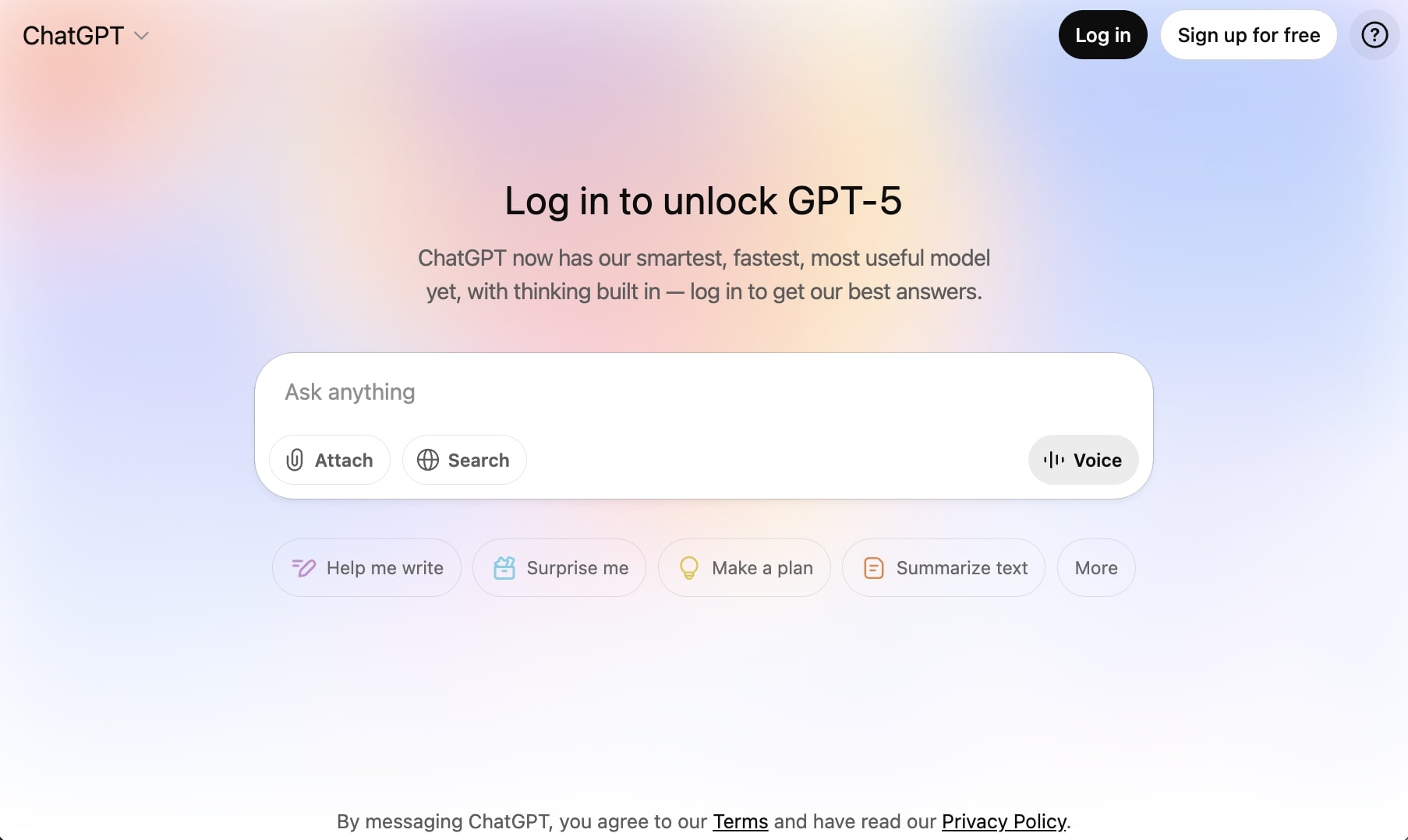
- Best for: Topic ideation (not direct keyword research)
- How I use it: ChatGPT autocomplete for question ideas
- Pricing: Free version available, Plus at $20/month
And finally we have ChatGPT. But you have to be very careful if you use this as a keyword research tool. You never want to ask ChatGPT to give you keyword ideas and to blindly go and target them. ChatGPT does not have context into if people are actually searching a keyword (like Google Autocomplete) or if those keywords actually have any search volume.
Out of all keyword research tools on this list, ChatGPT is the most dangerous one to use. But dangerous doesn't mean bad. Fire is also dangerous but it can also be used to create warmth and cook food. ChatGPT is dangerous because it can easily misguide you down the wrong path. But if you're smart enough to know what direction you're trying to go, it can be a useful tool.
However, there are two ways that you can use ChatGPT in your keyword research process.
First one is using ChatGPT's own autocomplete feature. If you go to chat.com in an incognito window and you start typing in questions like "what is..." you will start to see questions that people are asking right within ChatGPT. This can be used for subheading ideas within your articles.
Another way to use it is to prompt it to help you find topics. I wrote an article on how I approach creating a content strategy for my SaaS clients and I coined it as the APTK Framework. The whole idea of that framework is to find your audience and then map it to your products and services. Then you use those two combinations to derive topics, which then you derive your keywords from those topics.
If you want to learn more about that, you should read these two articles:
But again, I want to emphasize that you should be very careful with using ChatGPT to generate ideas because it doesn't know the nuances of your business and it doesn't have any data on if the keyword is actually good.
Which platform is best for keyword research?
My favorite platforms for keyword research would have to be Google Keyword Planner, using Google Autocomplete, and using Google Trends. If I'm trying to do broader analysis for my clients, and analyze their competitors (and what keywords they're ranking for), then Ahrefs is probably the best platform to use for competitor keyword research.
But best is subjective, and it really comes down to your workflow and your level of experience. For example, I started off my SEO career using a combination of Semrush and KeySearch. And I was never even aware of the fact that I could just use Google's free tools.
But I think leveraging the paid tools in the beginning actually taught me what to look for when it comes to keyword research, because those tools do give you a lot of data and they're premium paid tools for a reason.
But at this point in my career, almost a decade into SEO, I honestly believe that I can grow any website without needing to pay for a single tool and simply just using the free resources Google provides. But it takes time to get there.
Overall, I hope you learned something, and if you need help with any of your SEO stuff, don't hesitate to email me (contact link is in the footer).
Much love, peace out!
Get the weekly newsletter keeping +33,000 marketers in the loop.



